Education & Child Protection
Education is a basic human right enshrined in a wide range of nationally and internationally recognized conventions and declarations. It plays a significant role in protection thereby ensuring our own rights and welfare as recognized without any discrimination are safeguarded in accordance with national and international standards. By providing quality educational opportunities to children, Sabuj Sangha’s pioneering work in this area have supported towards the evolvement of the key actors in the society who can protect their own rights. The knowledge, skills and experience acquired are keys to building resilience for all possible durable solutions in our civil society in each and every context.
Social Change through Sports
In the mission towards ‘Empower a Girl, Empower the Nation’ since 2017 with flagship Programme – Nayantara Kishori Bikash we are persistent in our efforts for empowering Adolescent Girls in remote villages across 3 different blocks of riverine and coastal Sundarbans in South 24 Parganas district, West Bengal, India . The blocks are Mathurapur II, Patharpratima and Sagar.
To break intergenerational illiteracy cycle and patriarchal dictats of Girl Child Ignorance in remote Sundarbans we are trying to empower Adolescent Girls from financially and socially marginalized families with a Holistic Approach. Currently nearly 500 Girls are directly involved under the Nayantara Kishori Bikash programme across the three (3) blocks. They are now influencing more other 1000 across the region.
By extensive community engagements involving the families, PRIs and other institutions we are trying to mainstream the girls and breaking the paradigm of wasted girlhood.
- Education
Adolescent Girls from marginalized families are brought under formal education purview by enrolling them in Govt. Schools. They are supported with Learning Materials, regular Education Coaching, periodical evaluations and consistent follow up through our Coaching Centres spread across communities.
- Skill Development
To ensure the girls with some hard skills we have art and craft sessions.
Girls are learning
- Drawing
- Ornament making with Clay & Waste Materials
- Making Toys & Decorative items Clay & Waste Materials
- Tailoring
- Life Skill Workshops
To ensure groom the Girls’ Personality we have regular Life Skill sessions
- Communication and Interpersonal Skills
- Decision Making and Critical Thinking Skills
- Coping and Self-Management
- Personal Health & Hygiene
- Social Change through Football
To attune and make the body and mind powerful simultaneously we have regular Practice Sessions of Sports and Games. Yoga, Physical Exercises and Athletic Games like long and high jumps are played.
But, most popular among the Girls is Football.
As Football is a team game the Girls are learning different essential personal skills needed for future life, e.g. working in team, adaptability, unity, coordination, leadership, communication, peer support and presence of mind.
Girls’ don’t miss enjoying the Football Practice sessions. Some of the girls have the aspirations to become Footballer in future which we are trying to encourage foster.
Using the game of Football we are now planning to bring about a wider and sustained change in the girl child upbringing scenario in Sundarbans.
- Other Social Activities by Adolescent Girls in the Community:
Along with education, these adolescent girls, empowered by their leadership qualities are driving social change by addressing issues like child marriage and domestic violence. They are fighting against the harmful social practices and advocating for reform, engaging with PRI members to ensure their voices are heard and acted upon. Their grassroots activism and involvement are key to challenging old norms and promoting gender equality.
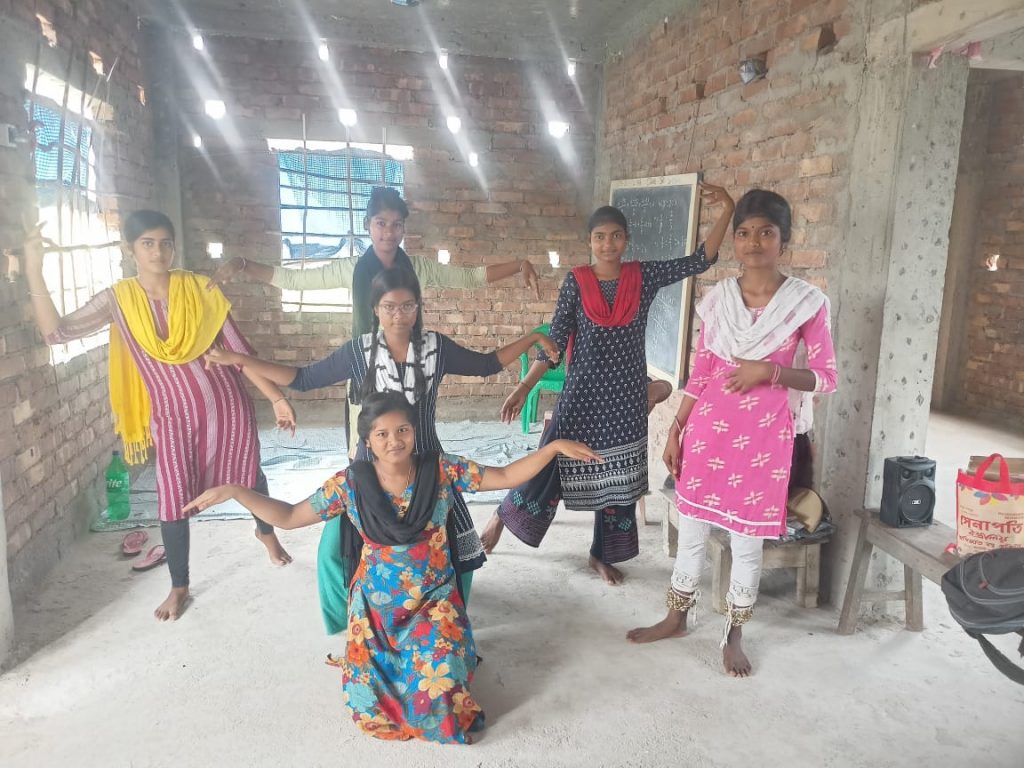
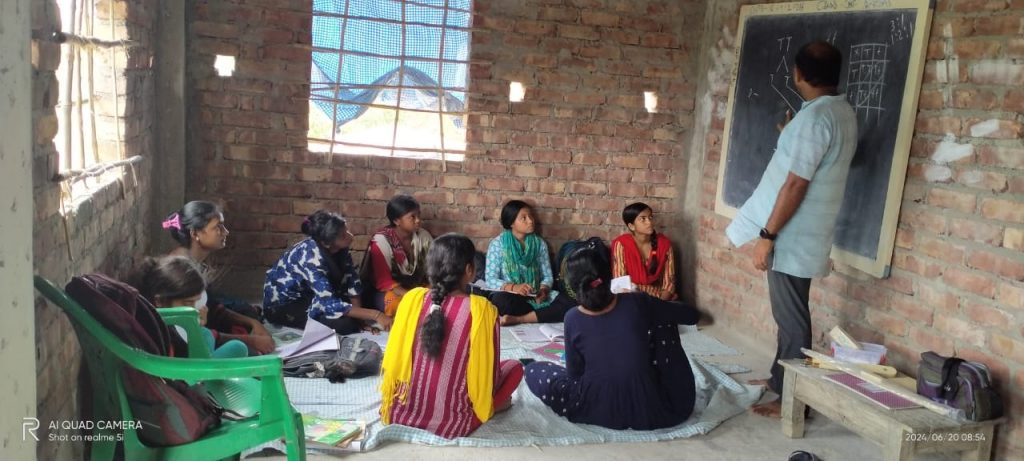
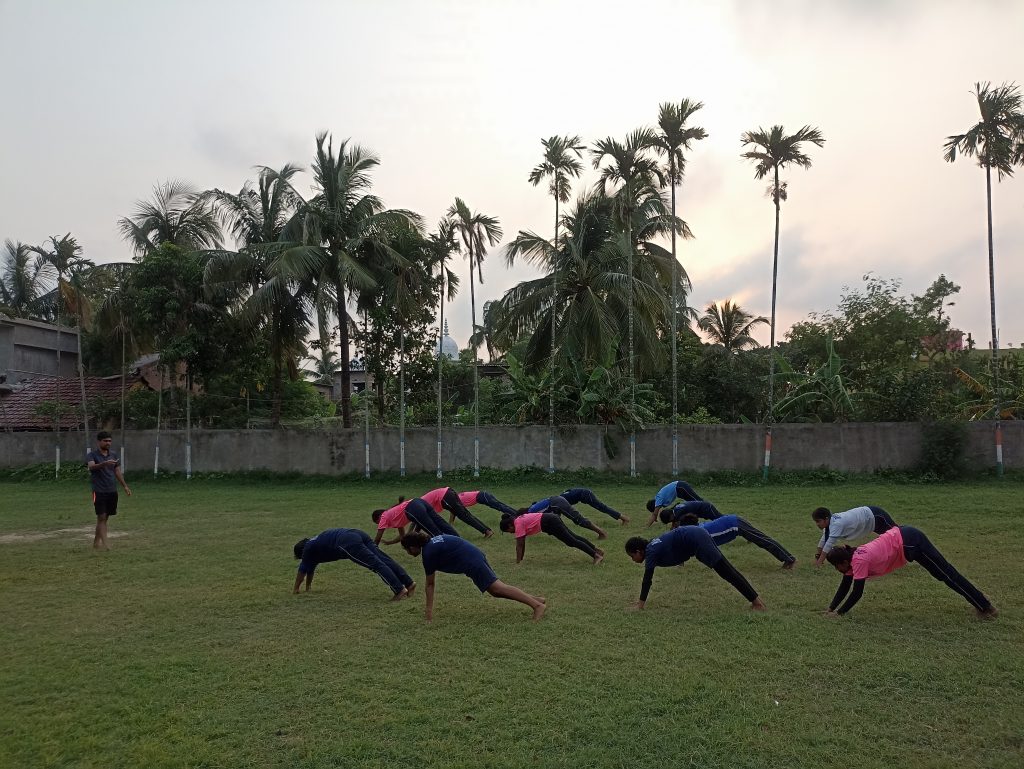
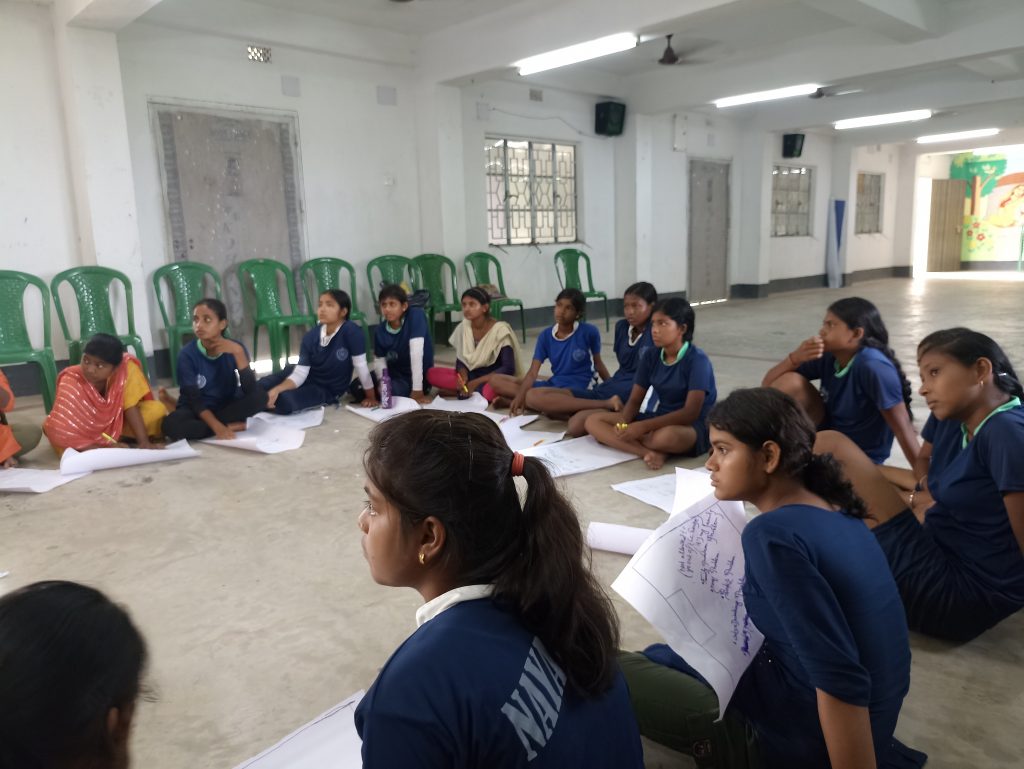
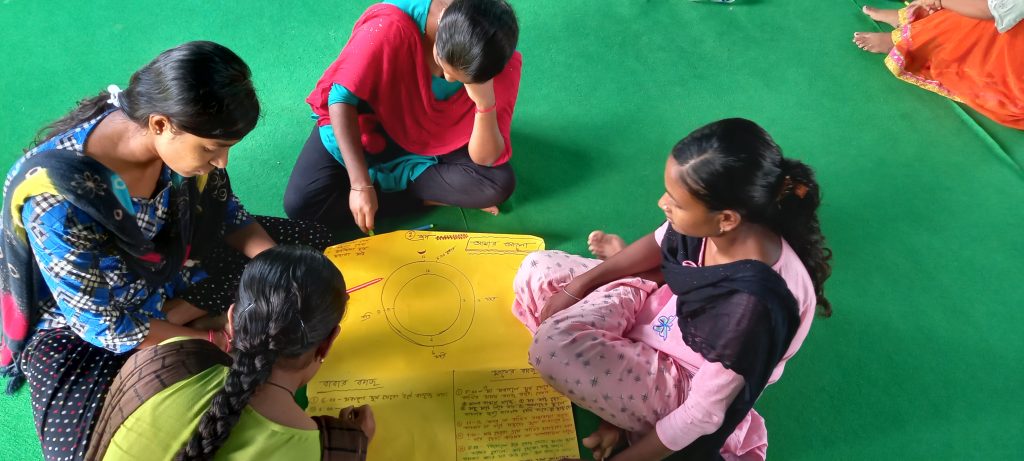
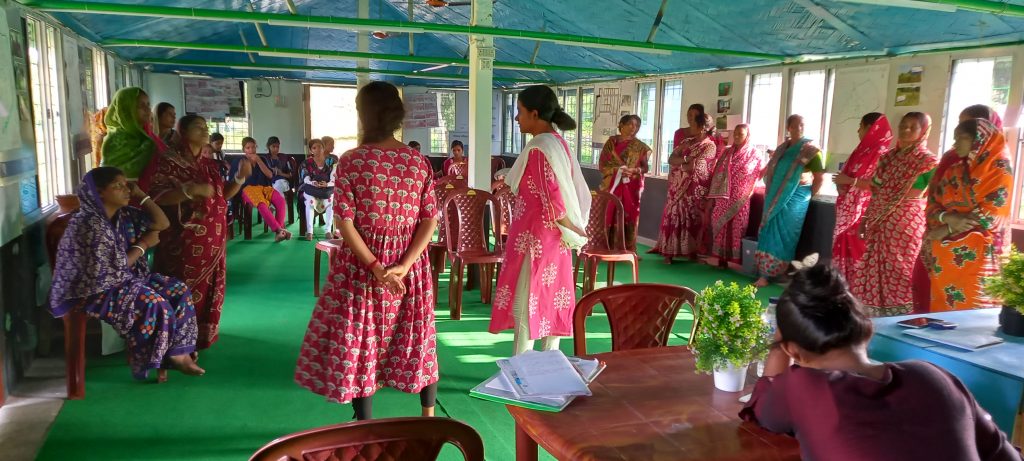
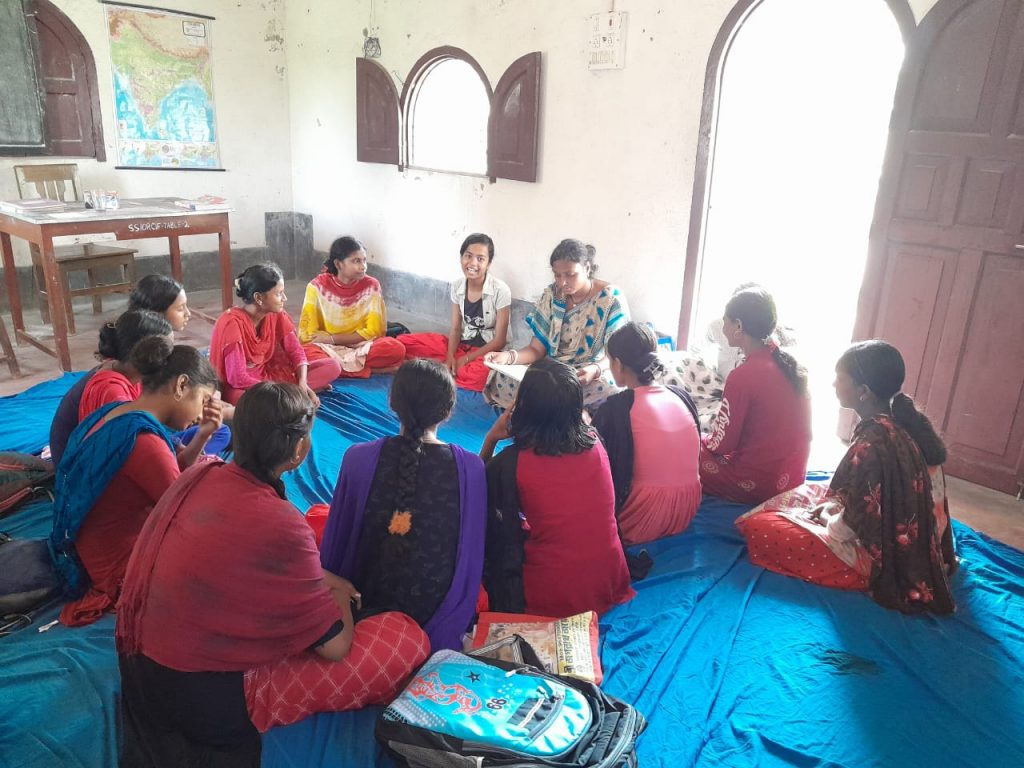
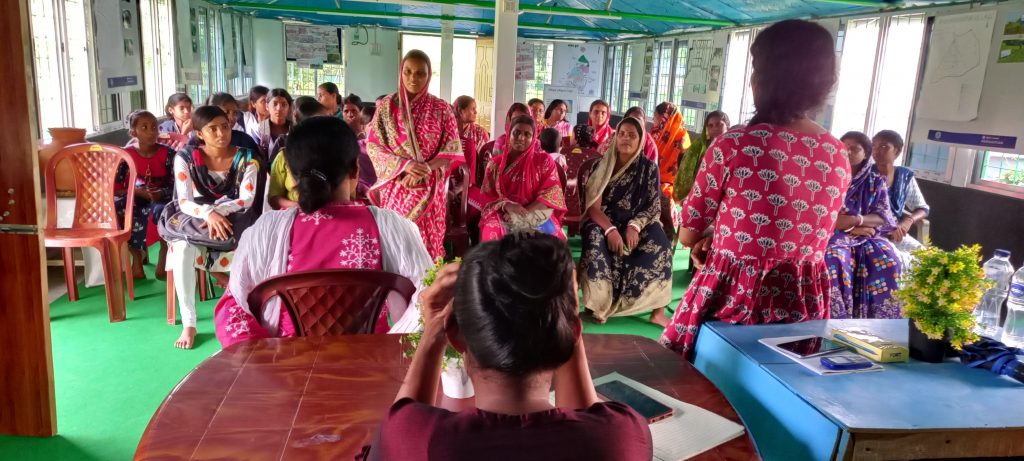
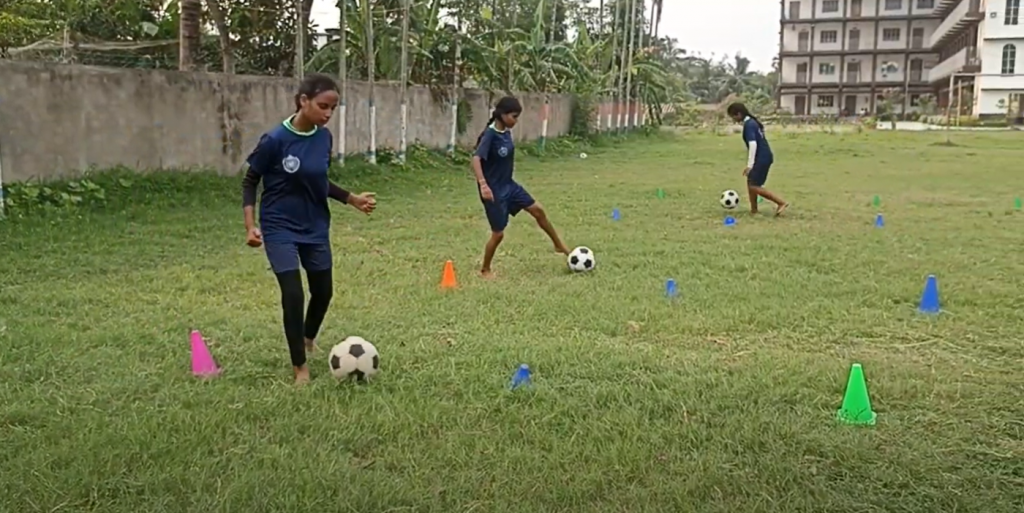
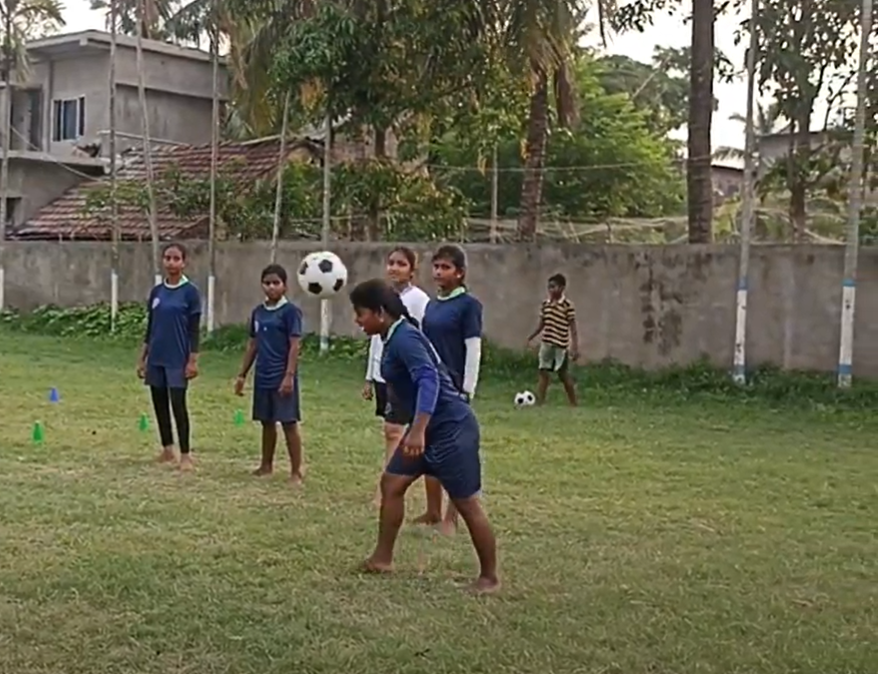
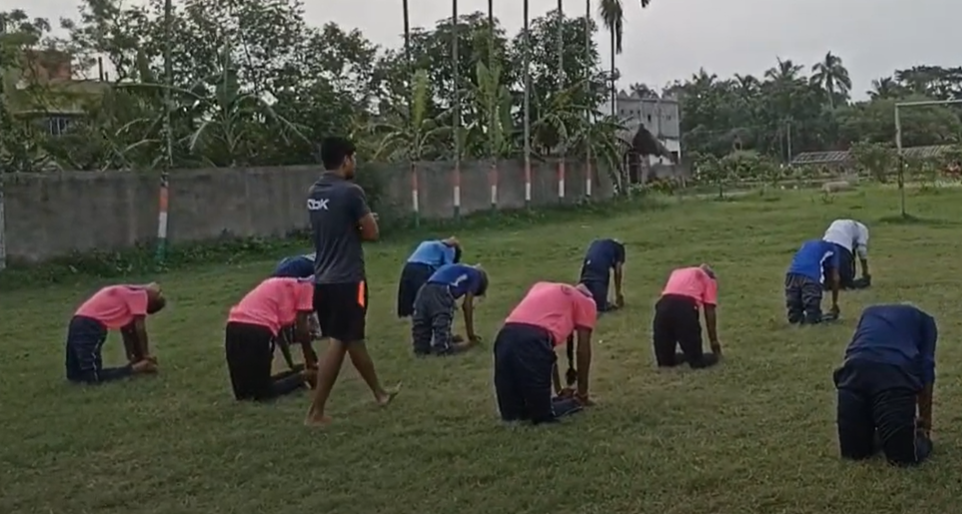
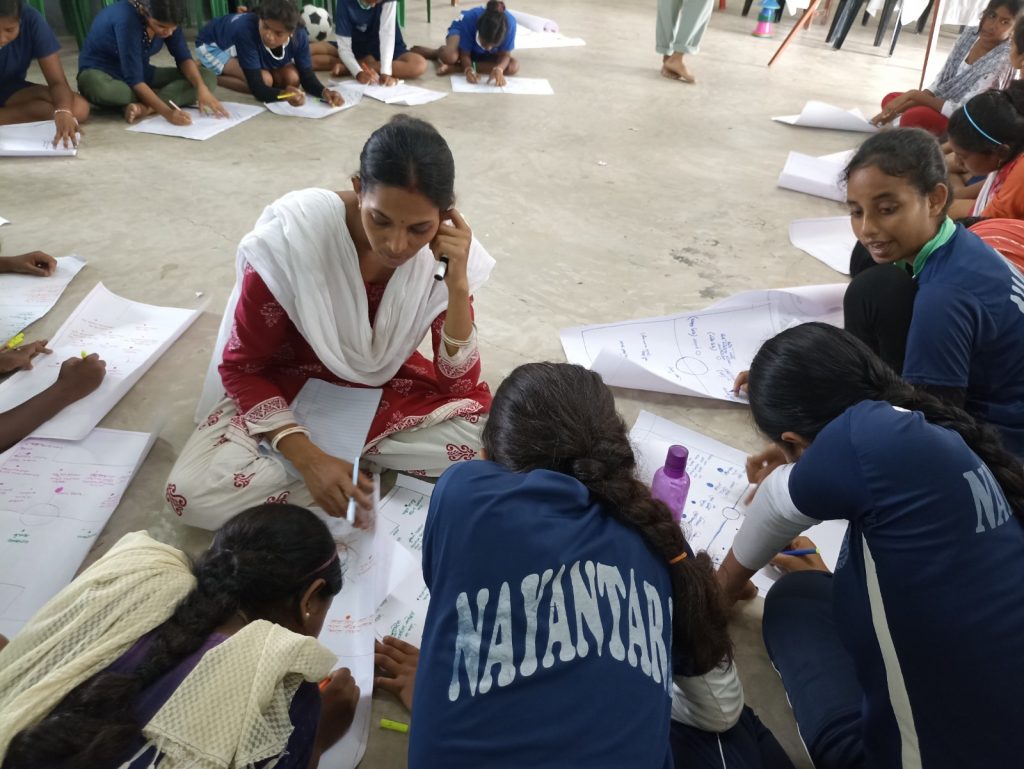
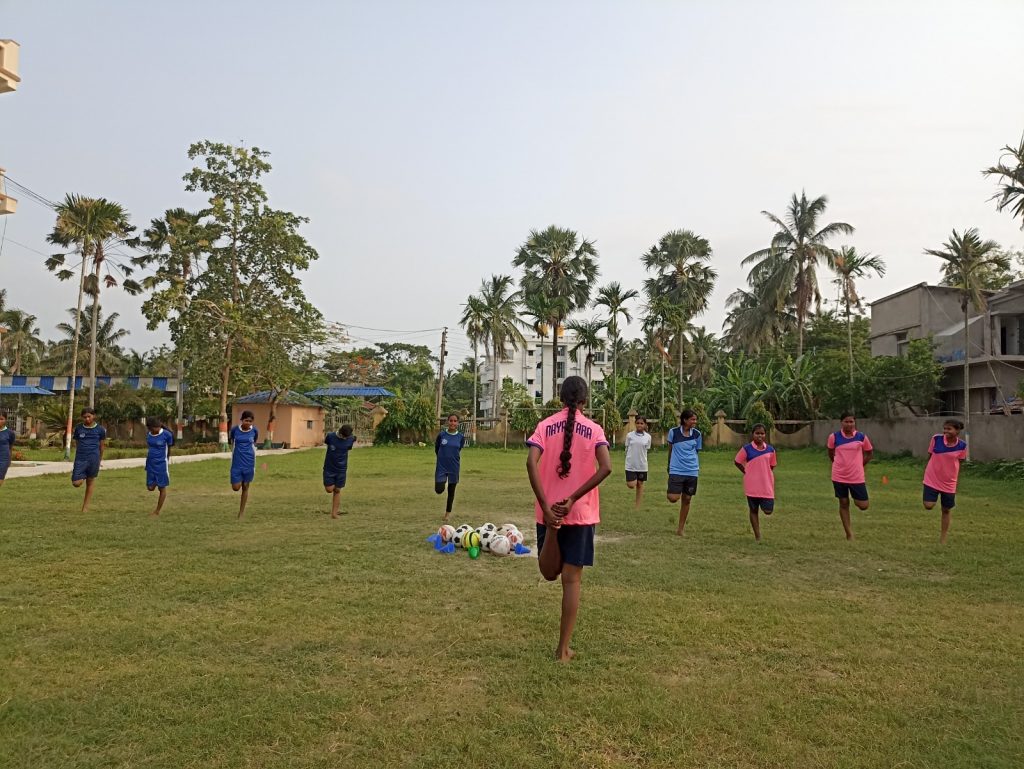
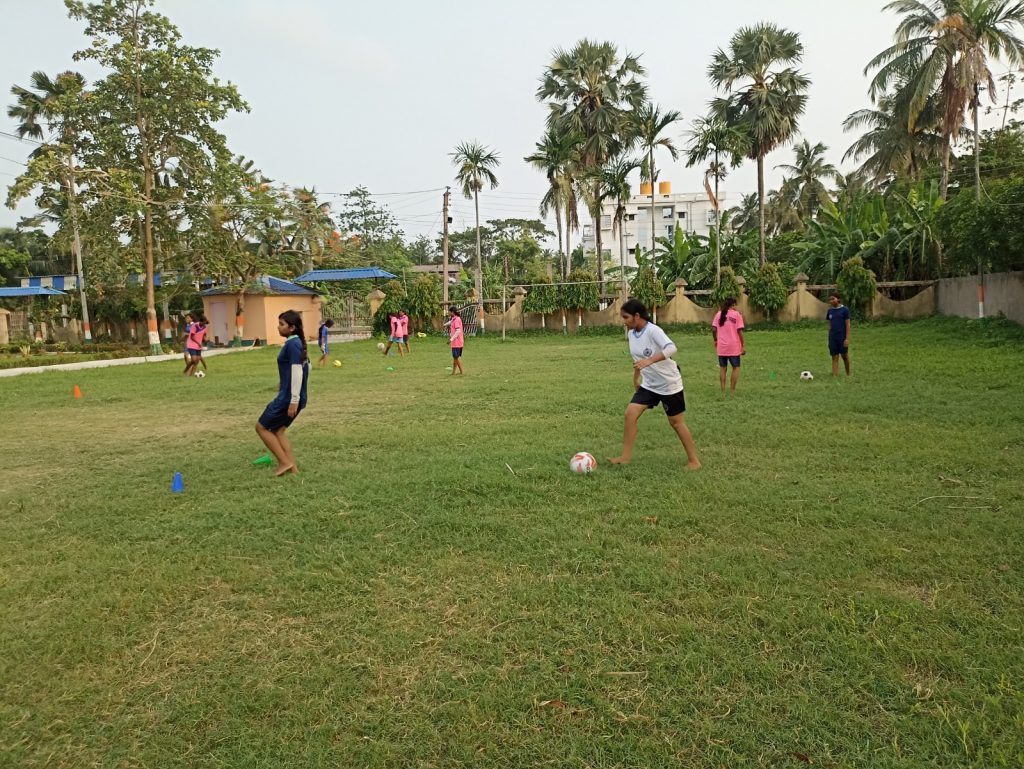
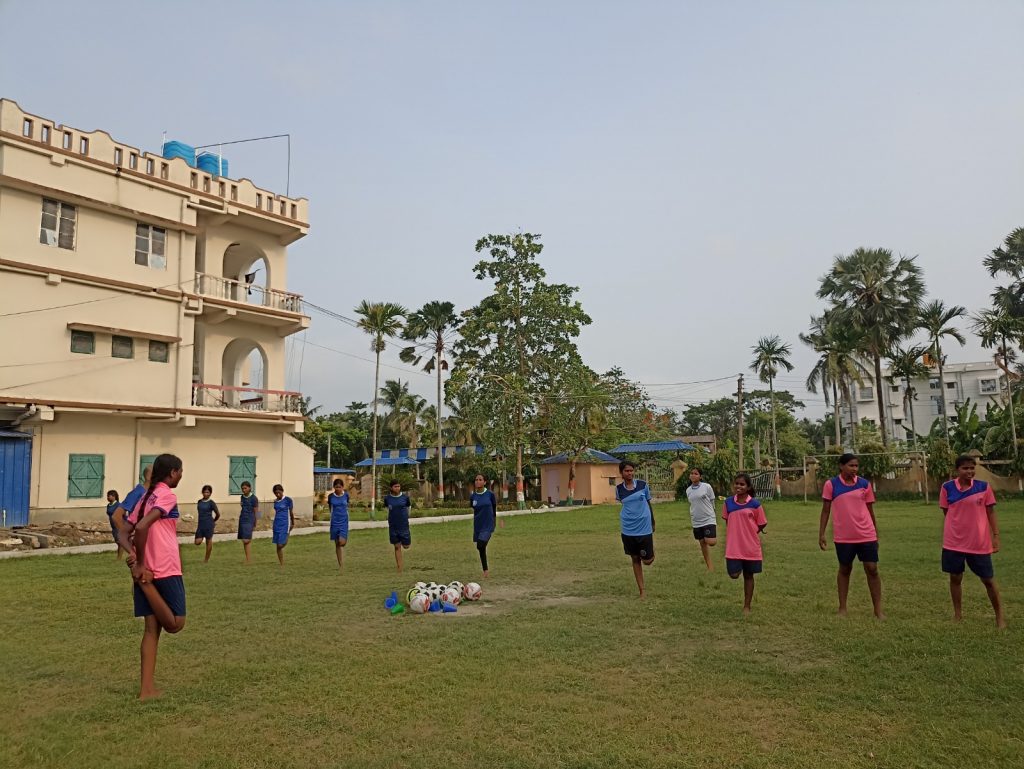
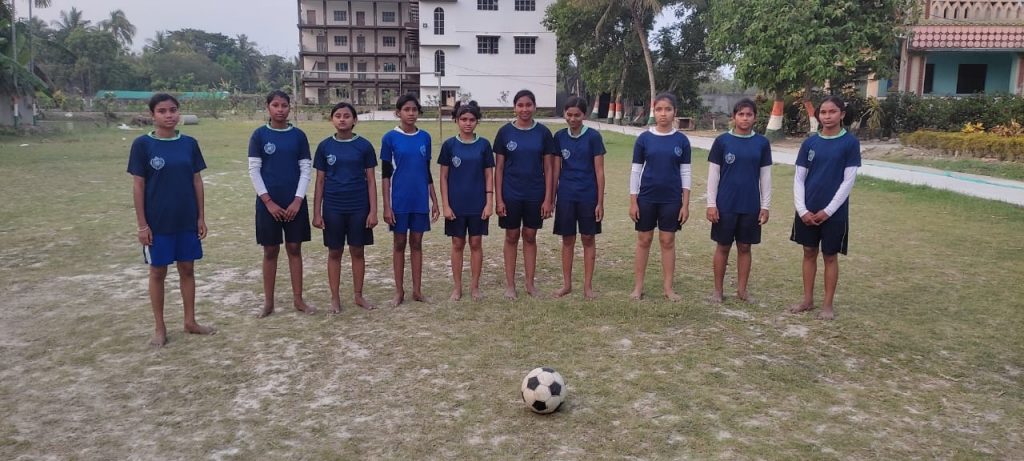
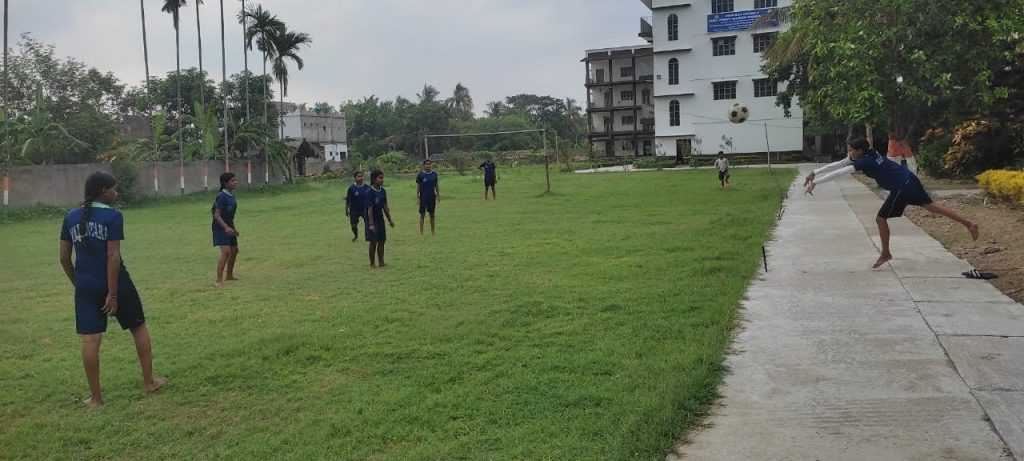
Kishalaya Sishu Siksha Niketan (KSSN):
In such a scenario, the KSSN is a Model School affiliated to the Education Department, Govt. of West Bengal. The school is equipped with 14no.of trained teachers who are empowered and involved with the best modes of providing education for 148 no. of boys and girls from Nursery to Standard VIII, majority of whom are the first generation learners. The KSSN has proved that education is affordable. The school also promotes art & craft, games & sports, work education etc. to grow interest in the children and address the wider issue of drop out and child labour. Students are also provided learning materials and uniforms. Periodical health check up is also an important activity in this programme.
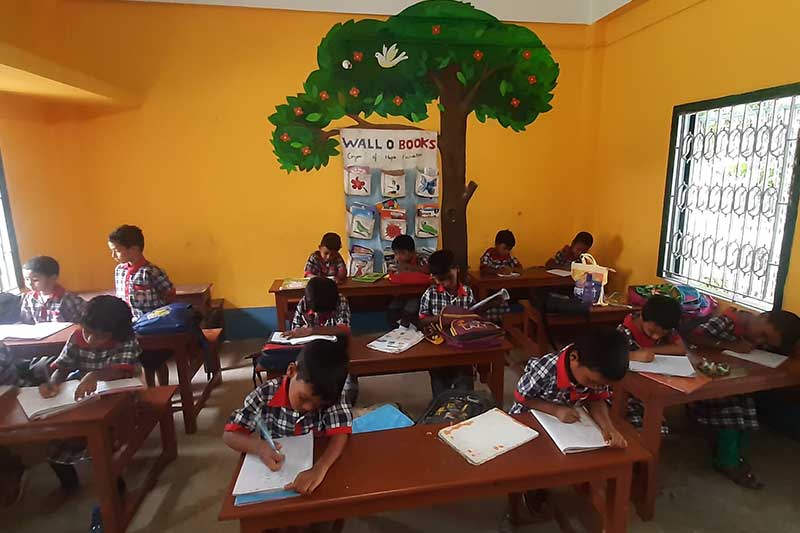
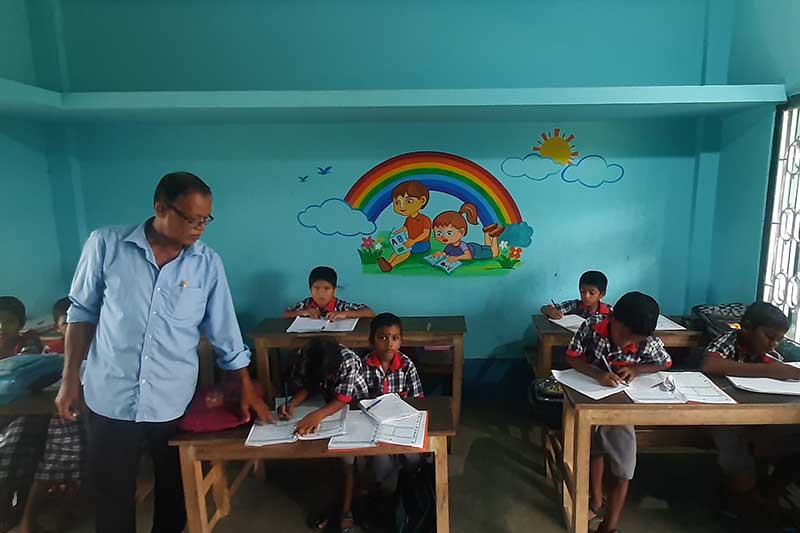
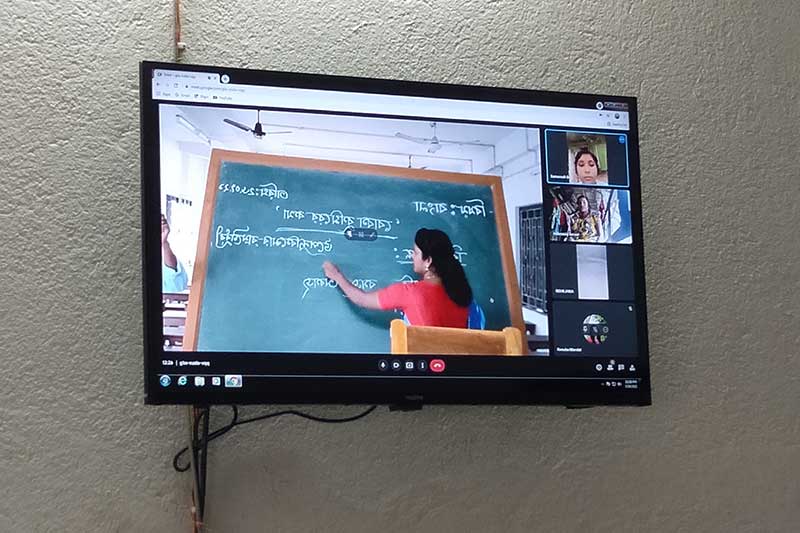
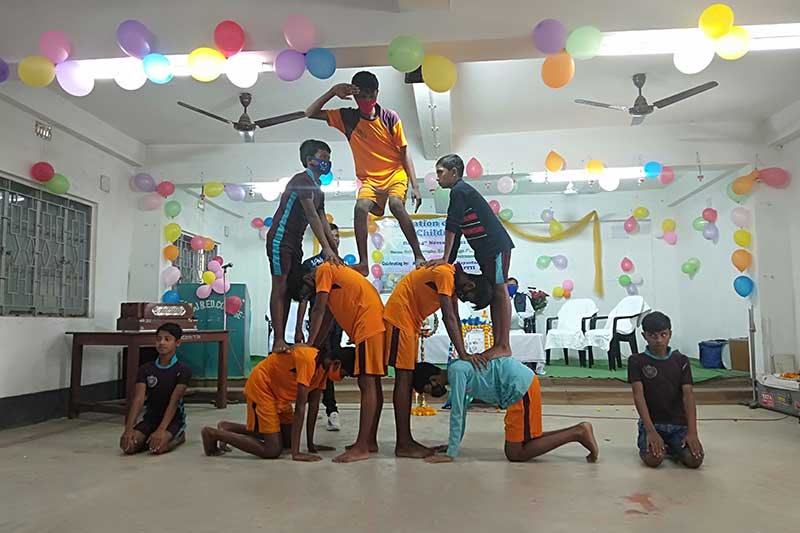
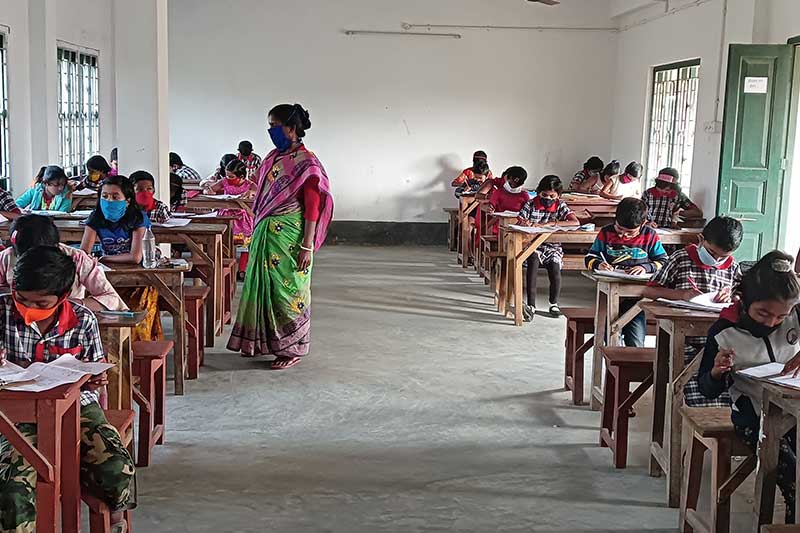
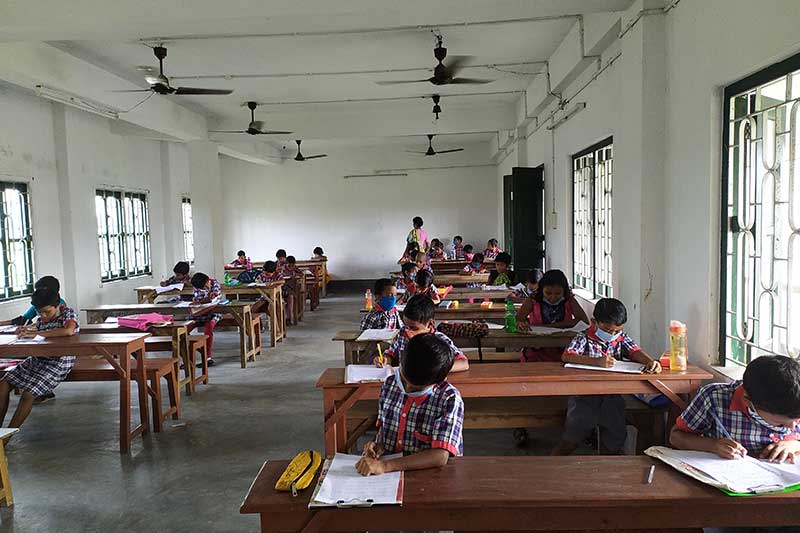
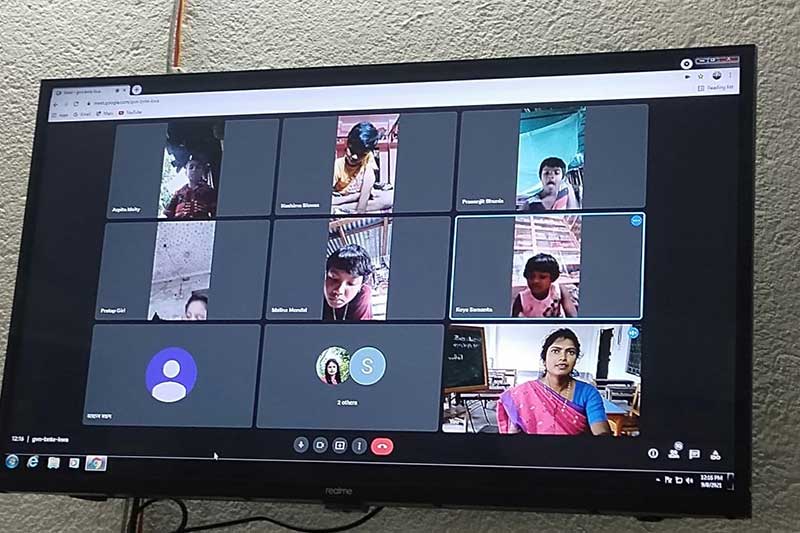
While the whole world was struggling with the pandemic situation, KSSN was also not left behind by the impact. The teachers and administration at KSSN took this up as a challenge and integrated digital learning mode by conducting online classes for children via the Google Meet application, thus addressing the disruption in the learning of the students. Children were smart to adopt quickly in new transition and enjoyed this innovative mode of learning from home.
Child Support Centre:

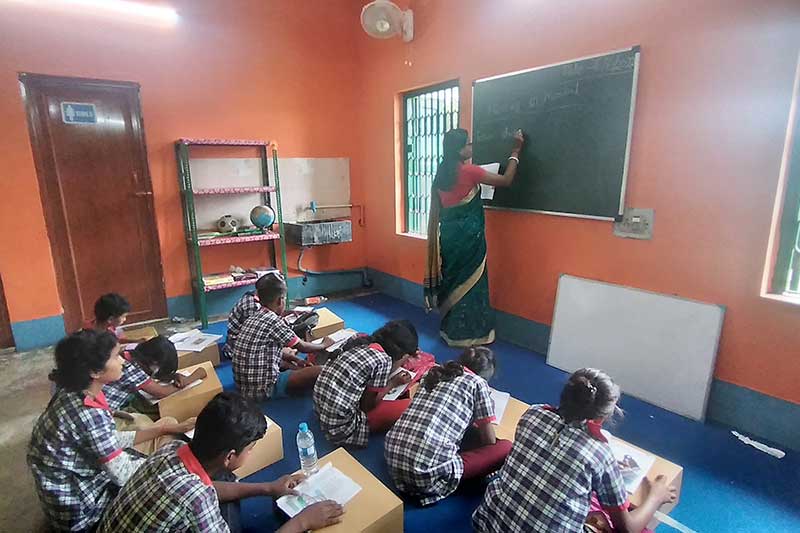
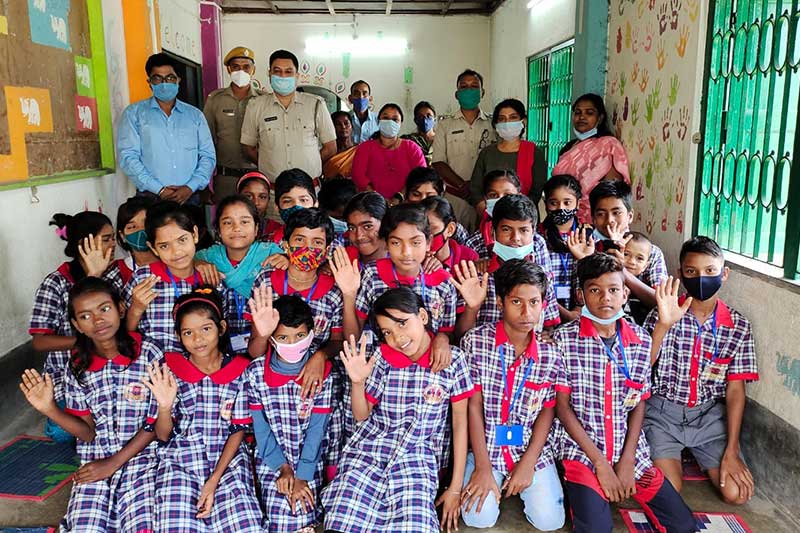
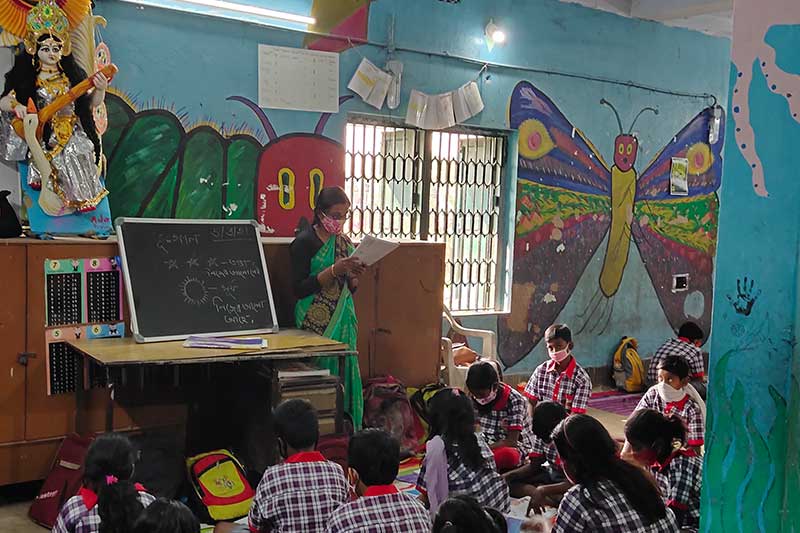
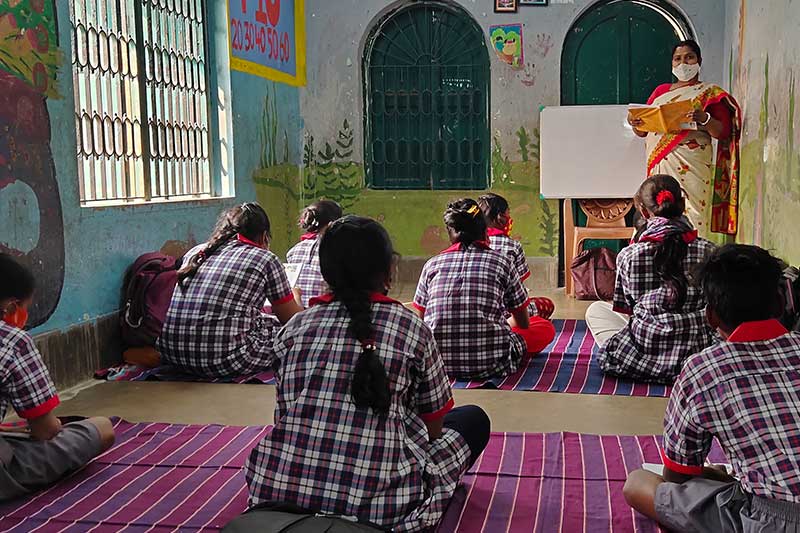
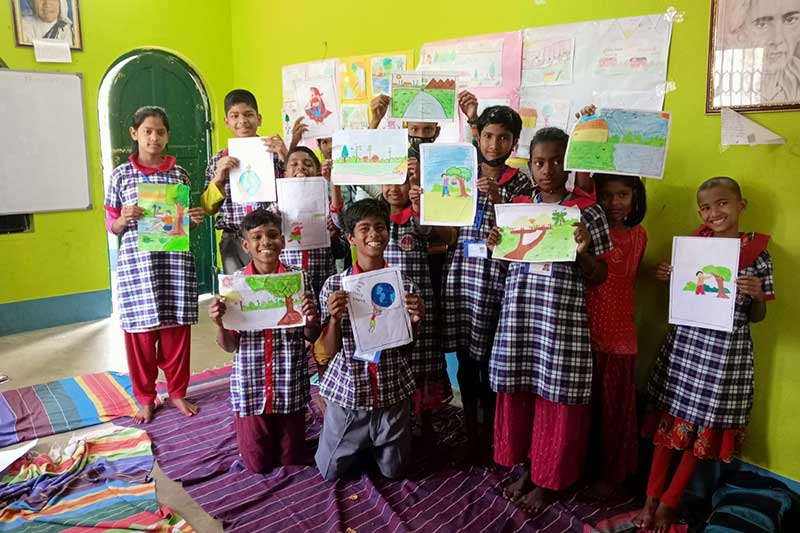
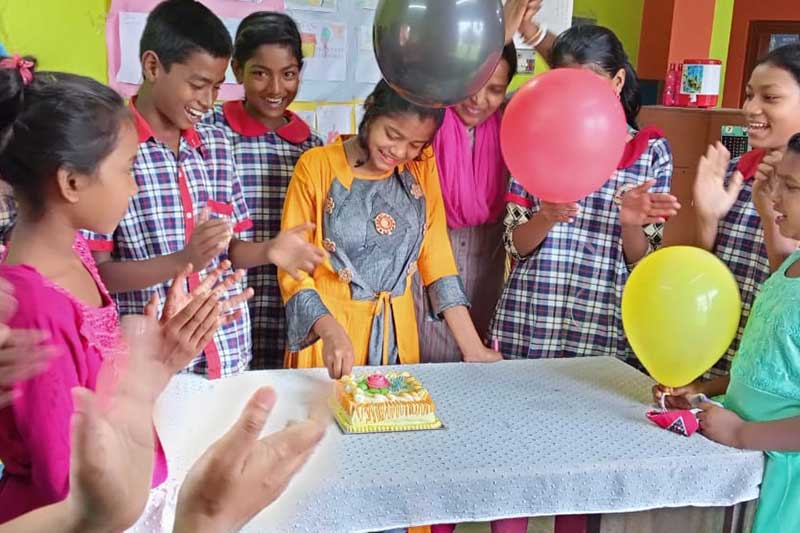
Ever since the inception the school cum child support centre is running in full swing contributing to gradual improvements of the identified children.
With 31 students, the school operates from 5 days [Monday- Friday] a week. Following the routine all curriculum subjects are taught and various extracurricular activities like Sports, Computer Education, Drawing, Singing, Dancing etc. are done.
Nayantara:
With time & space the scale of the programme has widened with focus to facilitate many unreached adolescent girls of remote Sunderbans villages. In supporting the identified enrolled Adolescent Girls to a newer concept of life enriching them with self-reliance, confidence and establishing their own identity we continued all our activities for educational support classes, health, mind building sports, yoga, Bratachari activities, skill building trainings of art & craft and building better understanding of life and its various aspects through Life Skill, leadership building & other incapacitating Trainings.
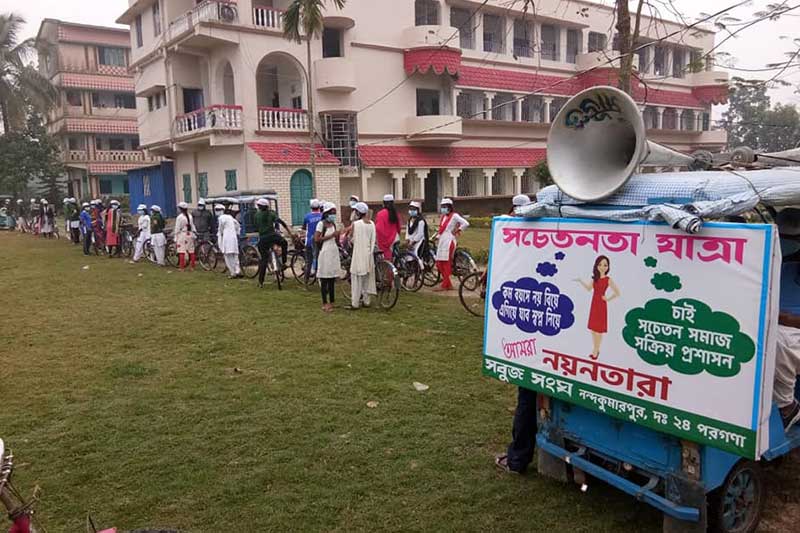
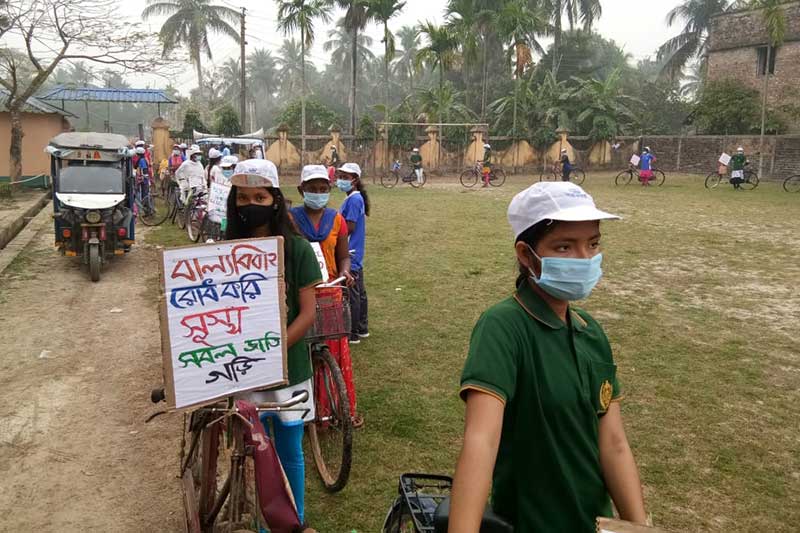
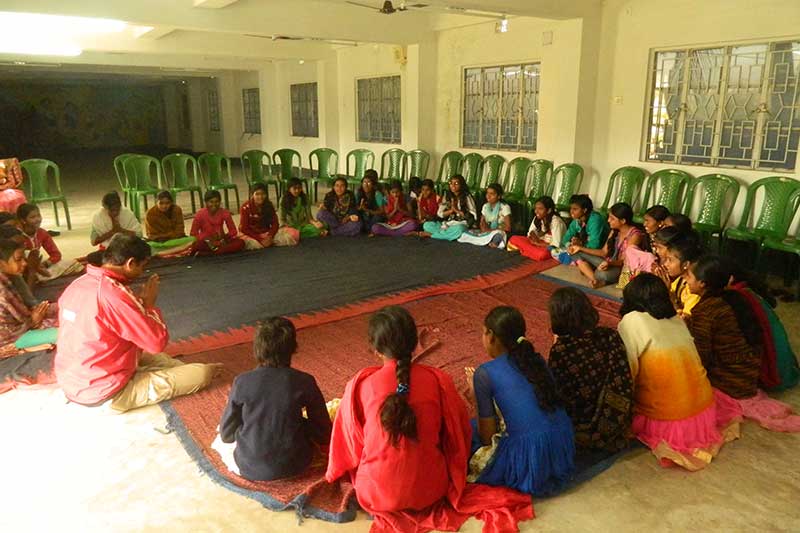
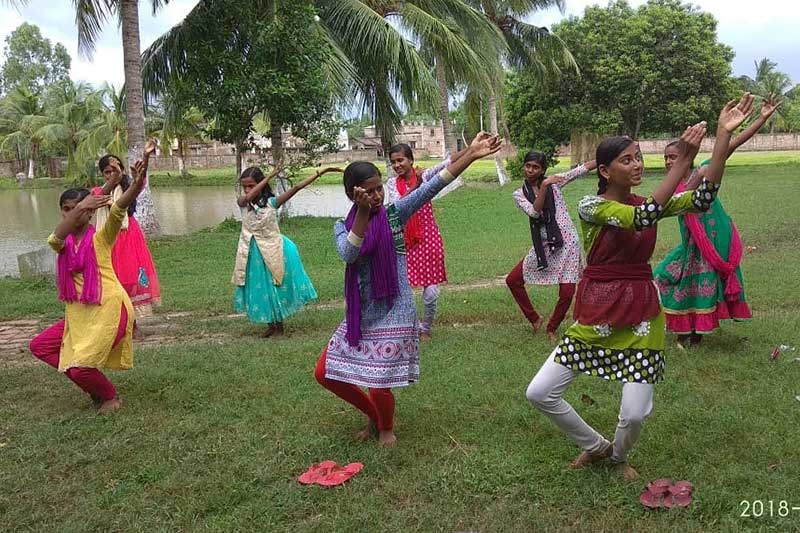
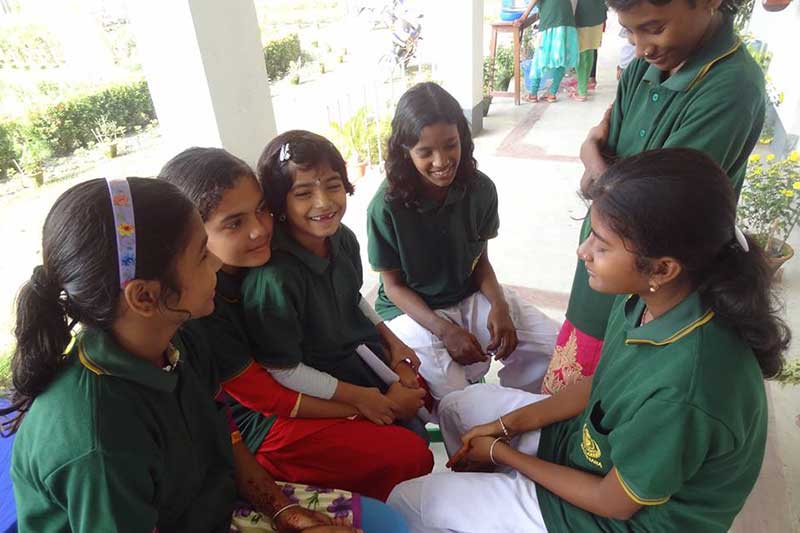
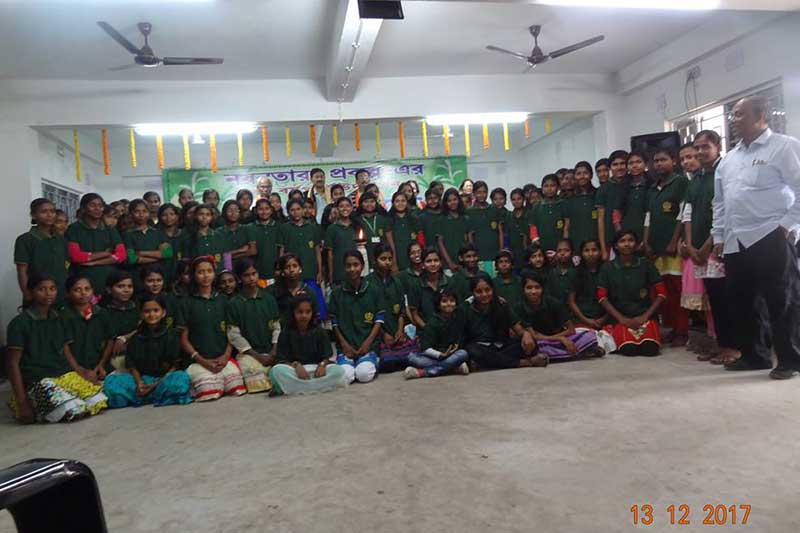
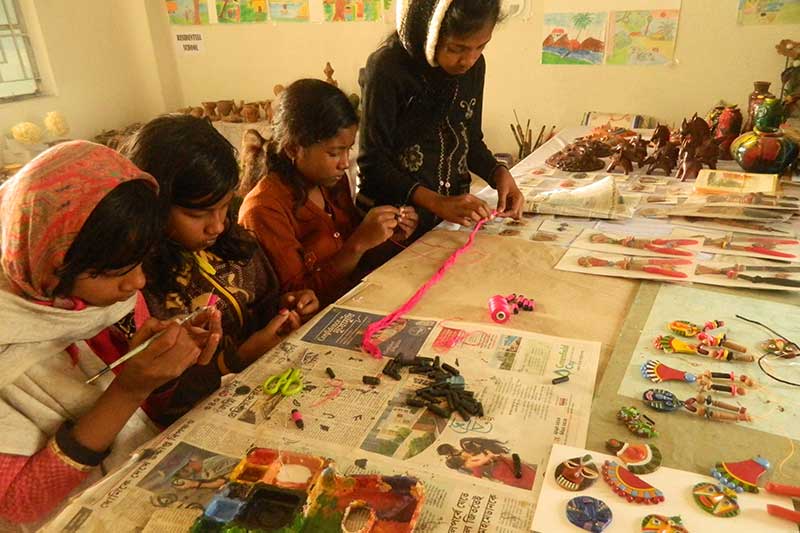
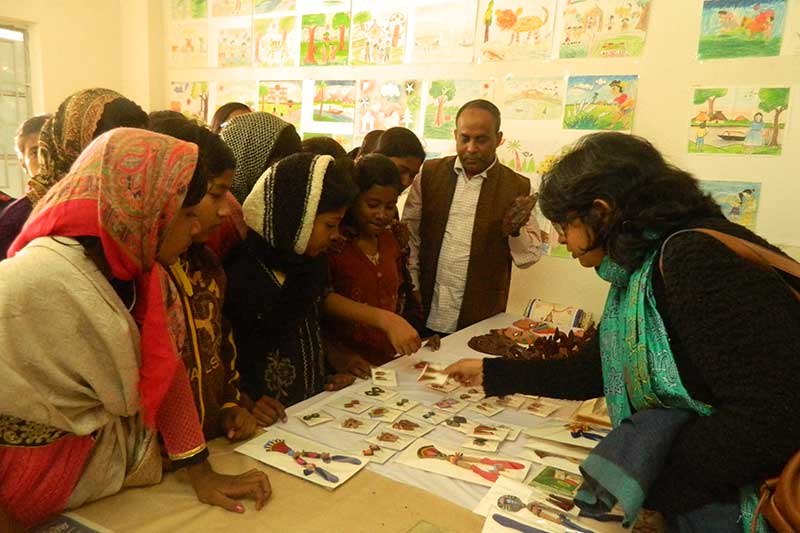
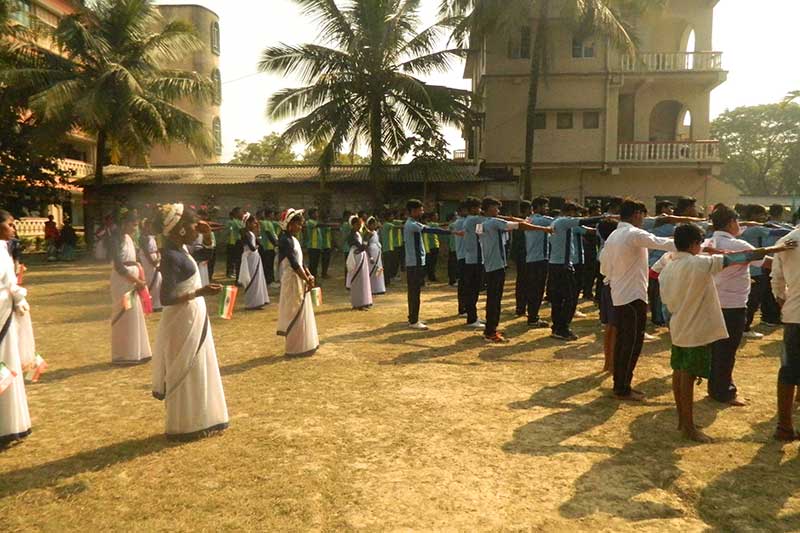
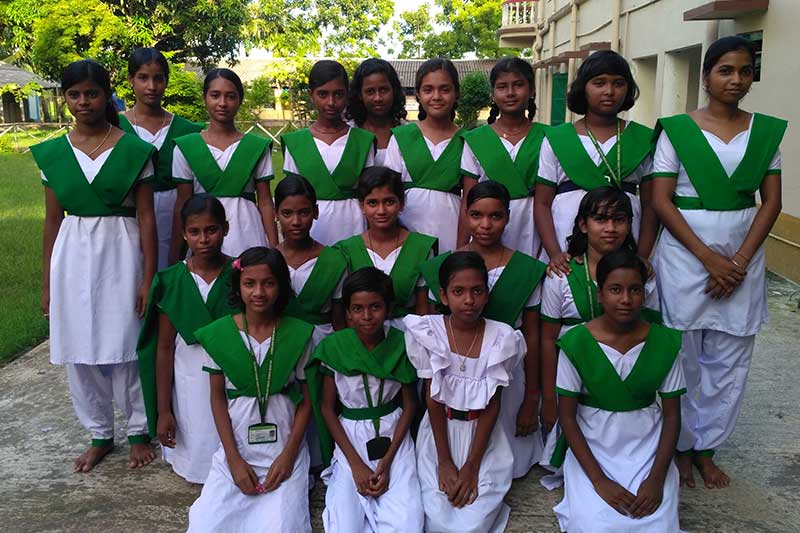
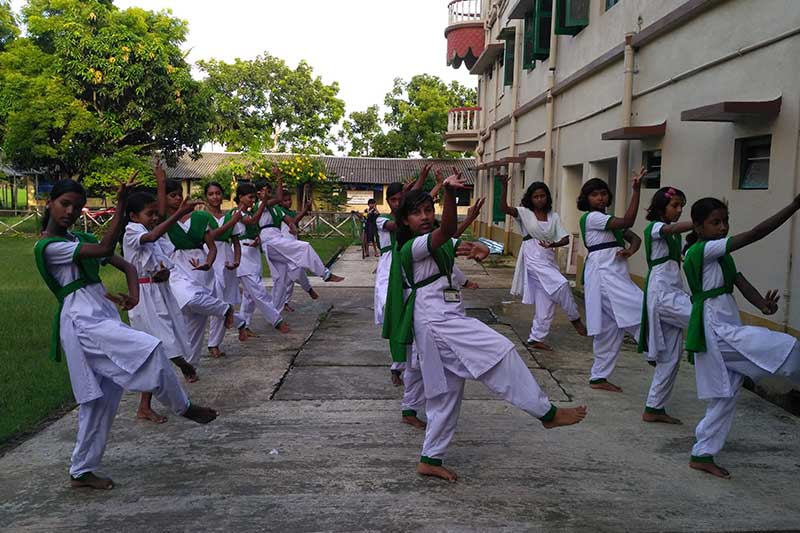
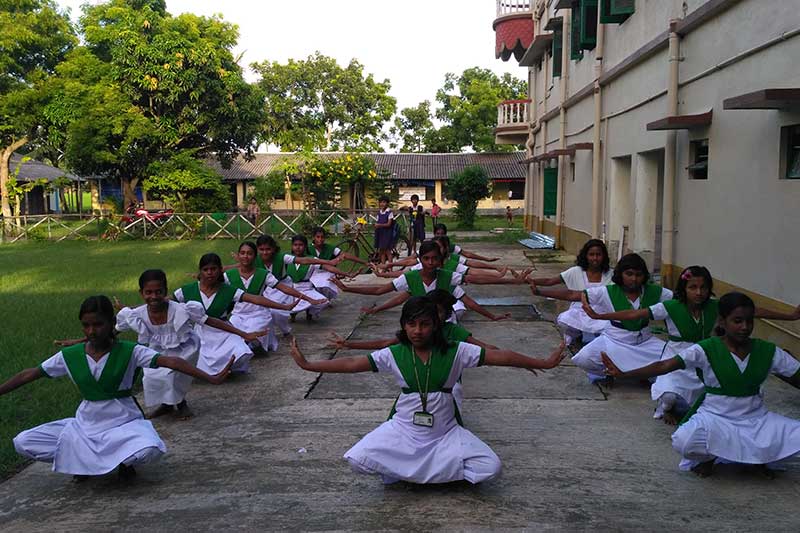
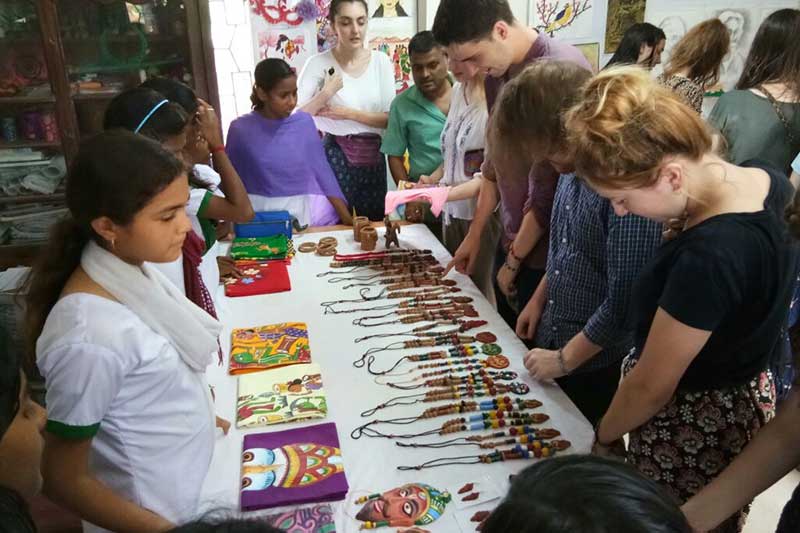
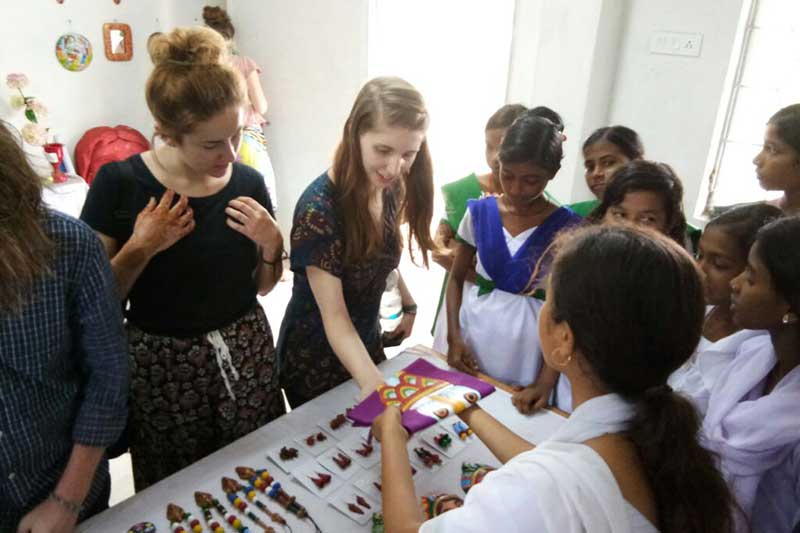
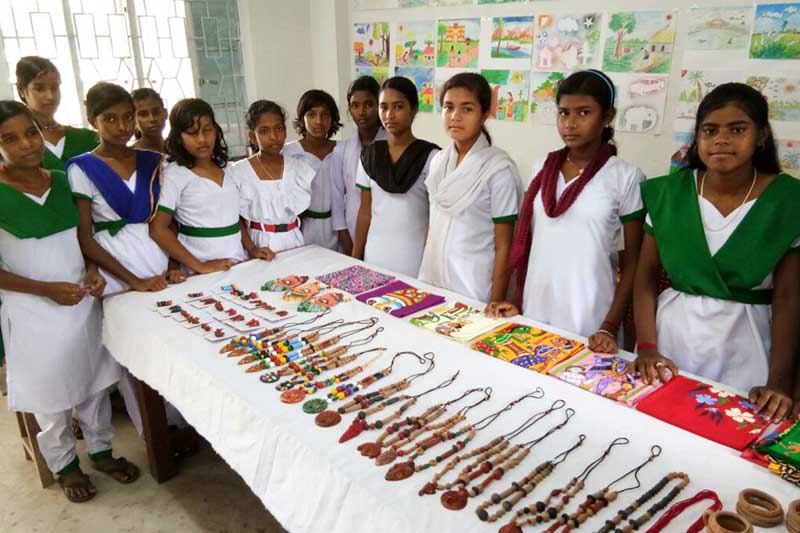
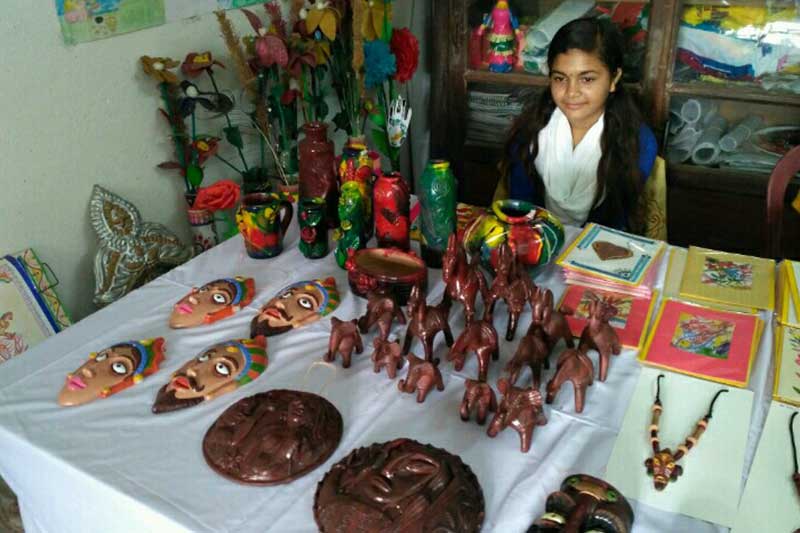
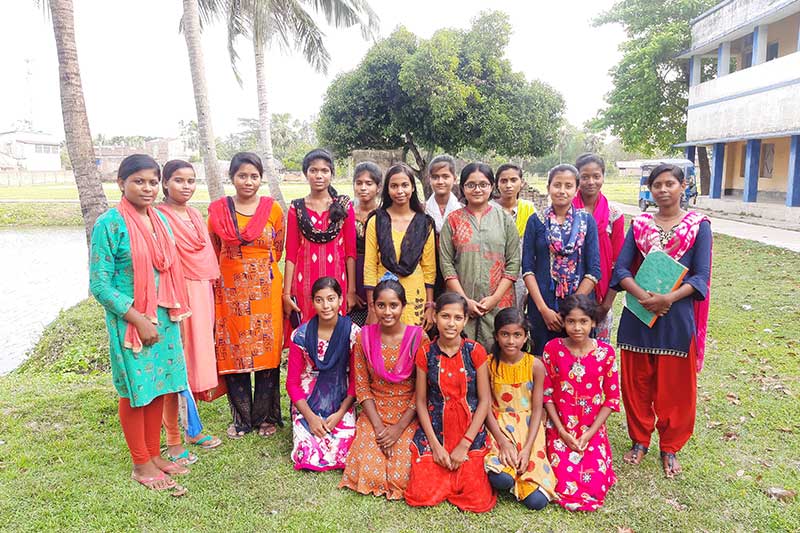
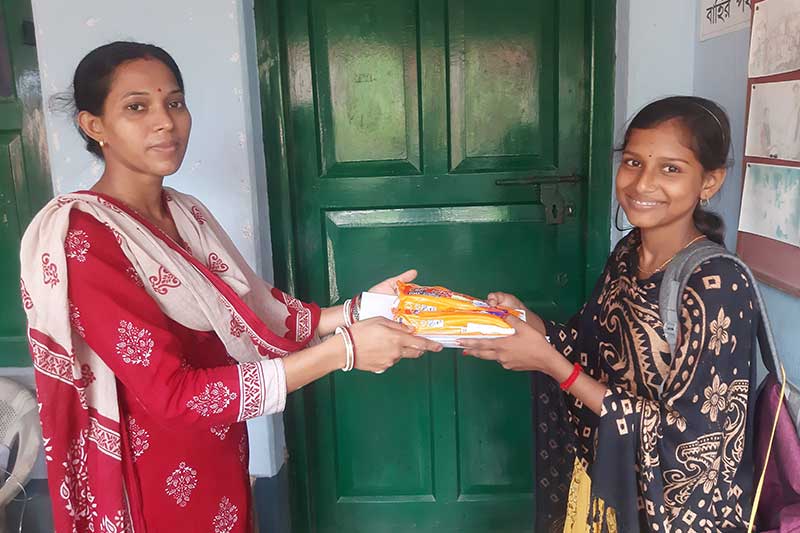
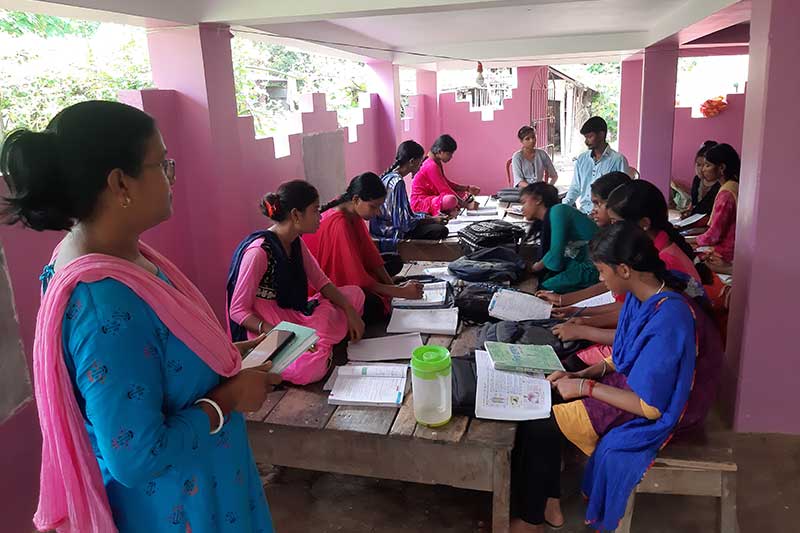
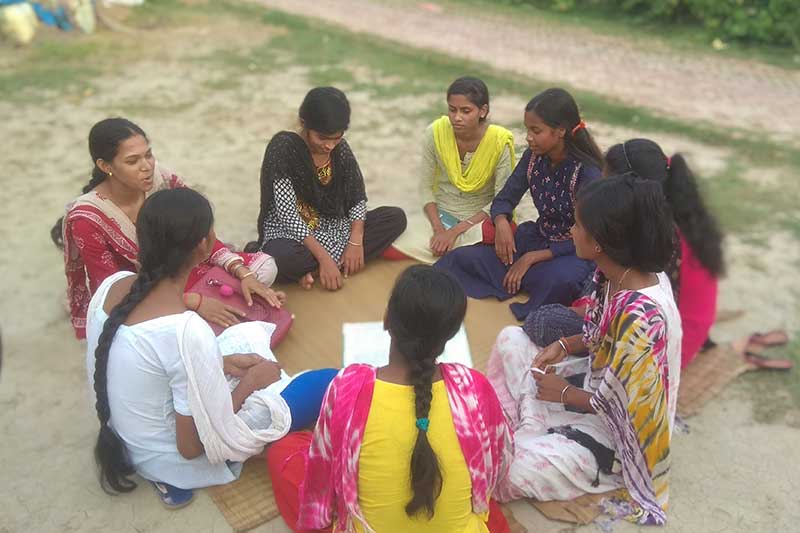
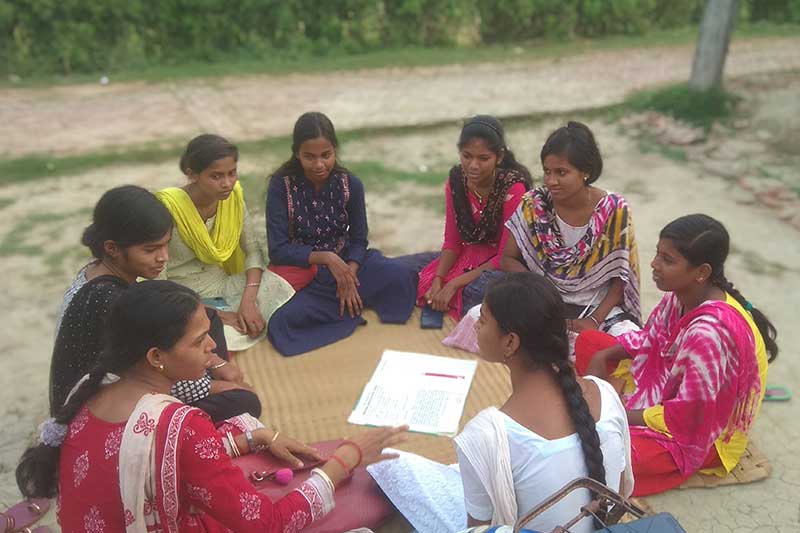
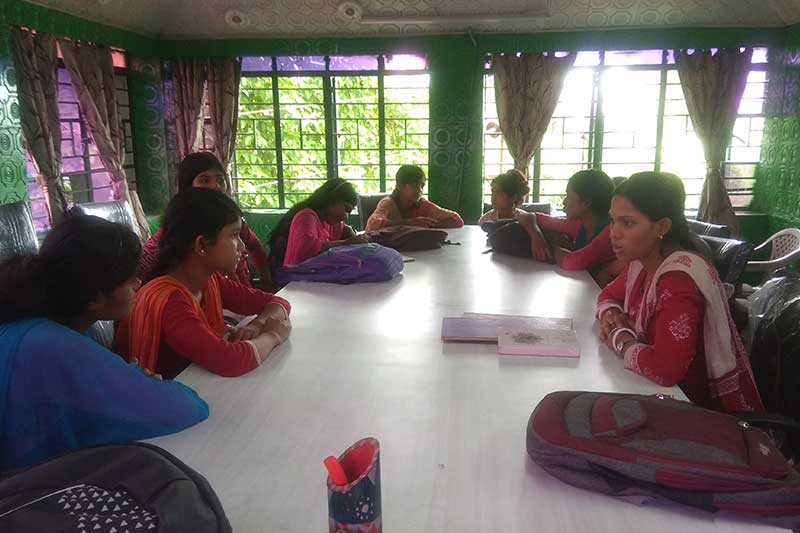
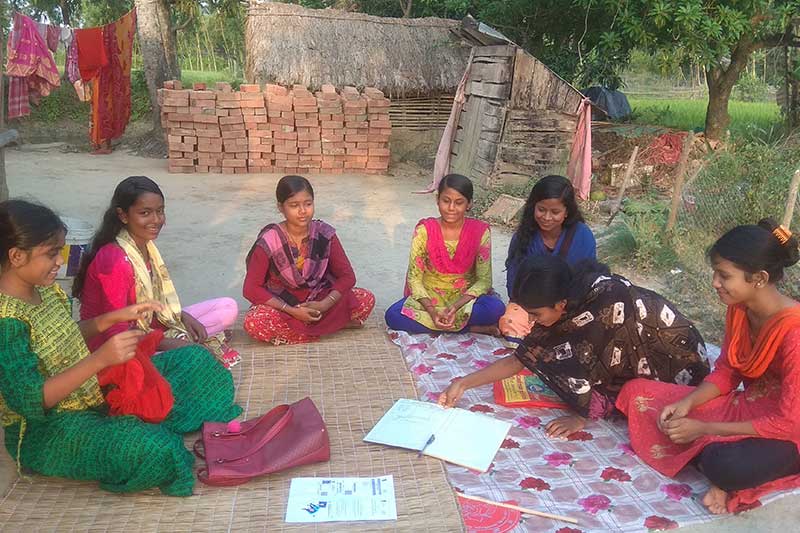
Altogether 102 adolescent girls are now being supported through the Nayantara programme across the 6 (Six) remote villages of Mathurapur II block viz. Naranpur, Narendrapur, Dakshin Jaykrishnapur, Nandakumarpur and Mahabatnagar. The girls were supported by providing essential materials so that they could continue their studies. Additional initiatives were taken by the girls to support the needy and to spread message on safety of the girls addressing to issues like early child marriage, girl child abuse and trafficking, early motherhood, empowerment and education of girls. 12 Kishori Bahini groups with 8-9 girls were formed who are regularly engaged in awareness building on the social issues related to gender, 12 bank accounts have been opened independently by the girls to create fund for their groups, and 4 cases on child marriages were successfully protested by the groups with support from Police Administration and Childline Team. Nayantara also extended relief support to 60 Amphan impacted families by providing food and other essential materials.
Residential School for underprivileged children - Natun Alo:
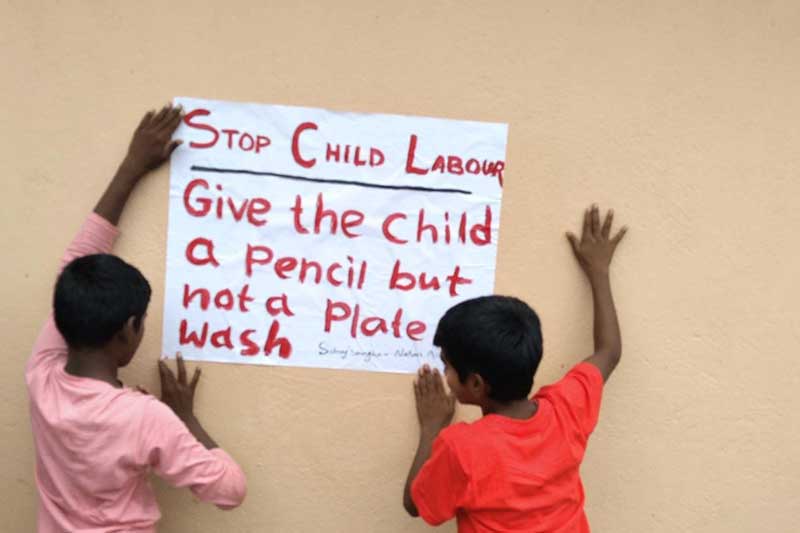
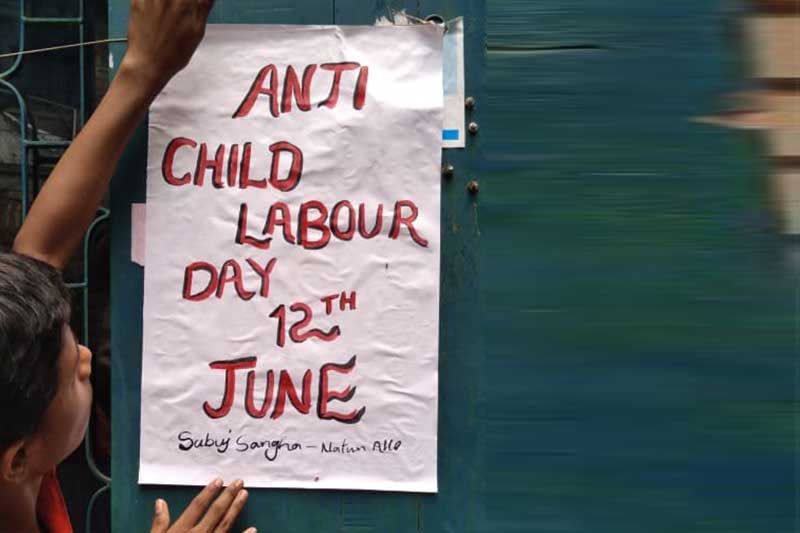
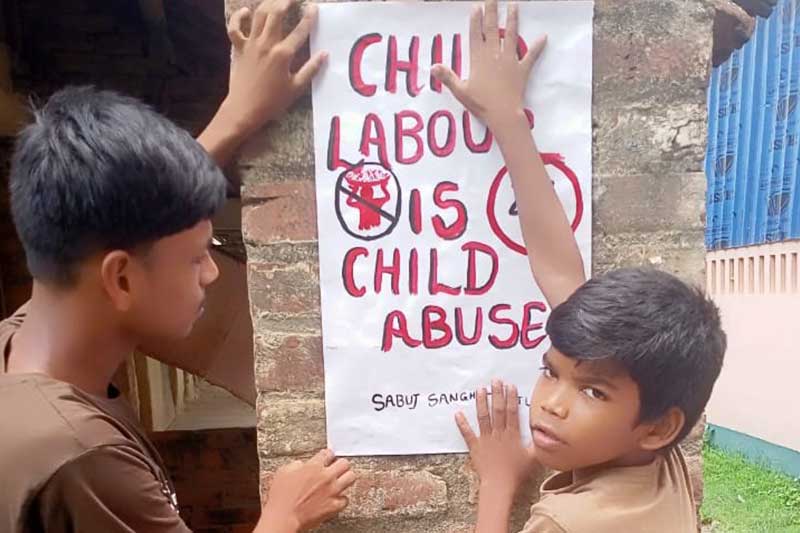
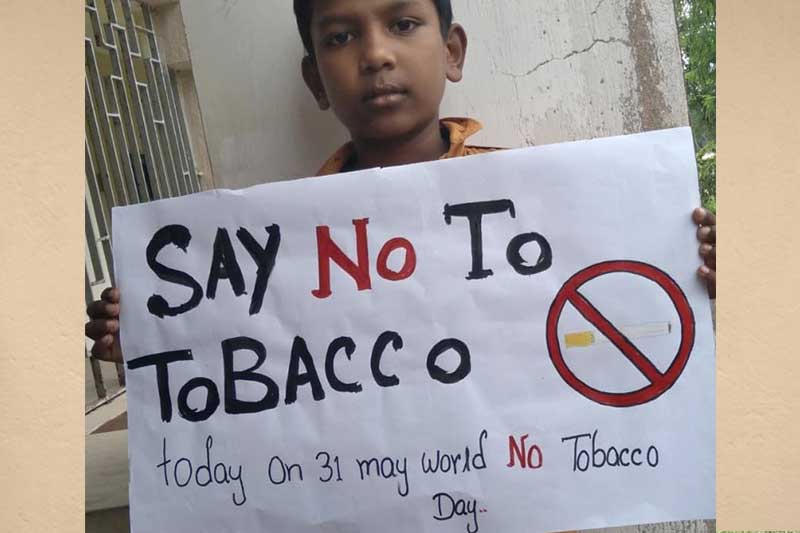
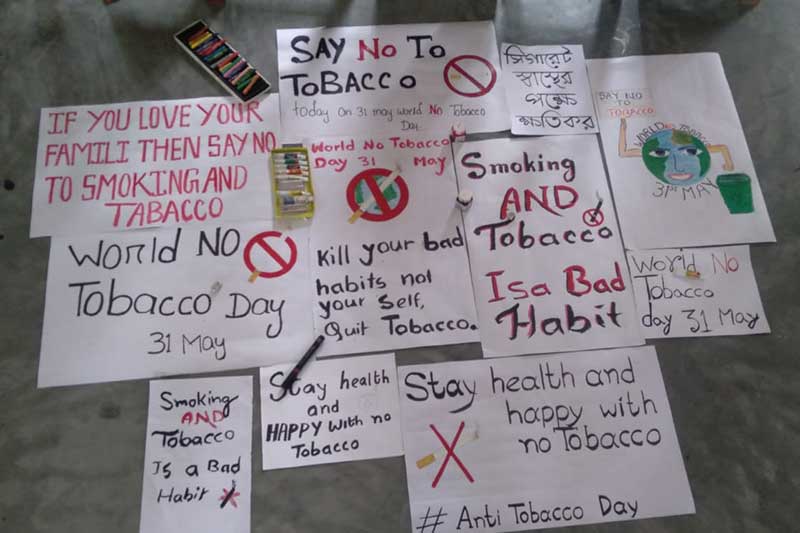
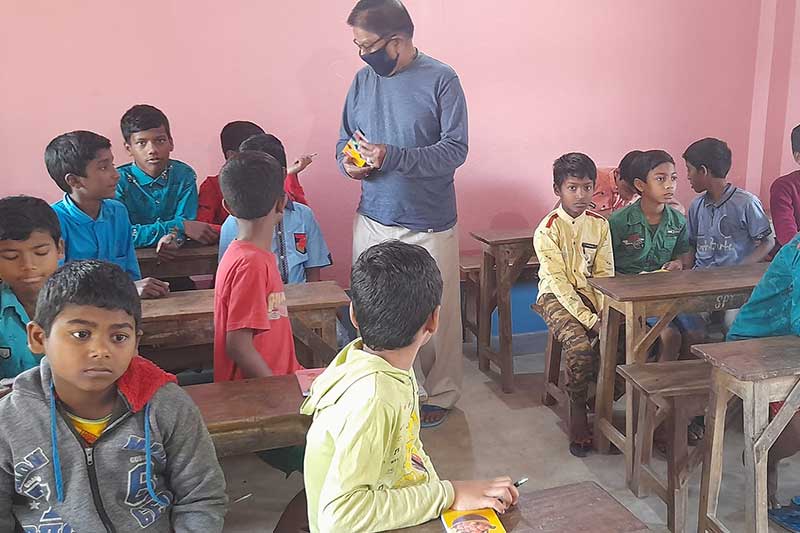
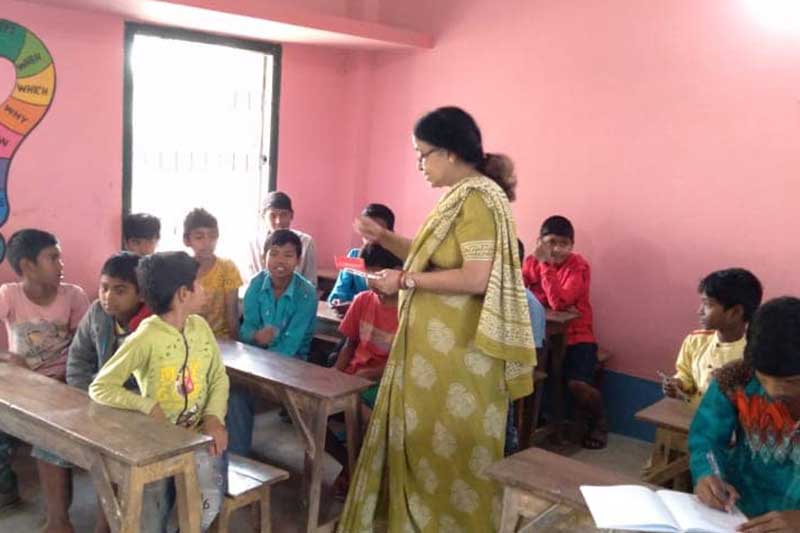
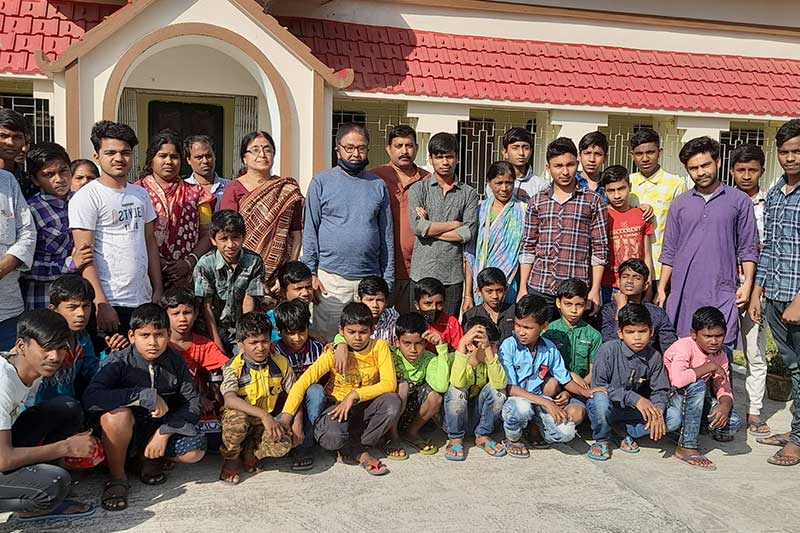
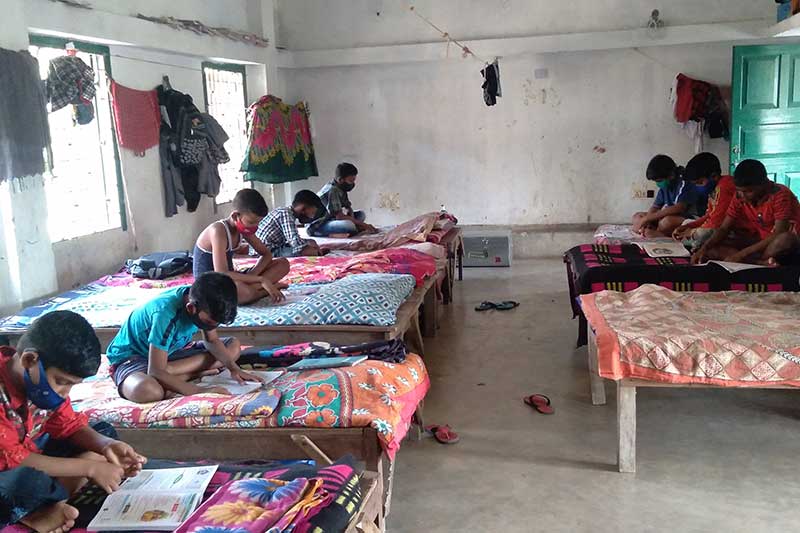
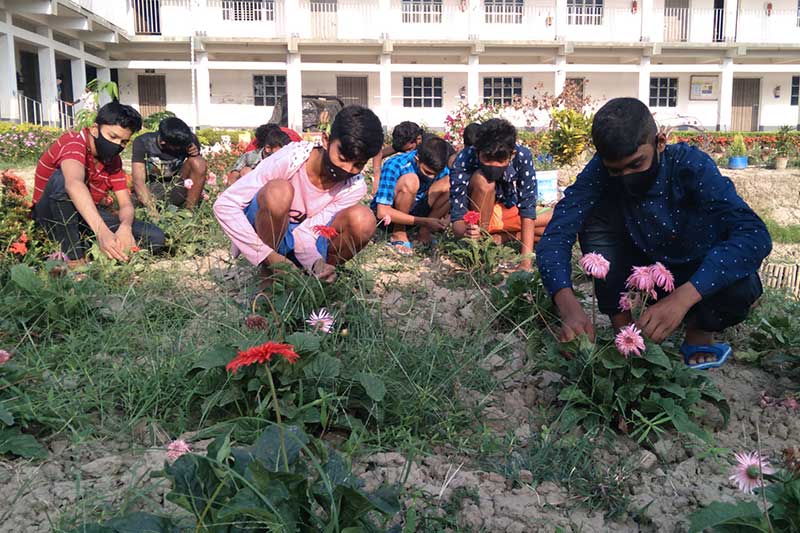
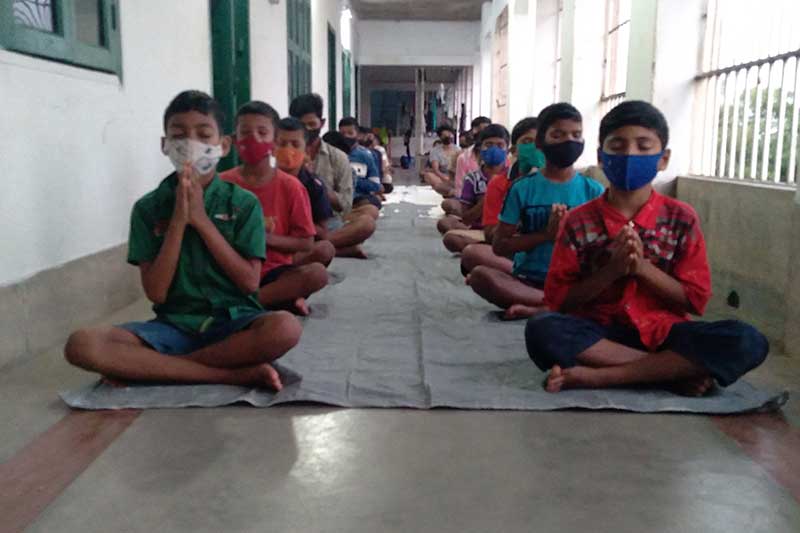
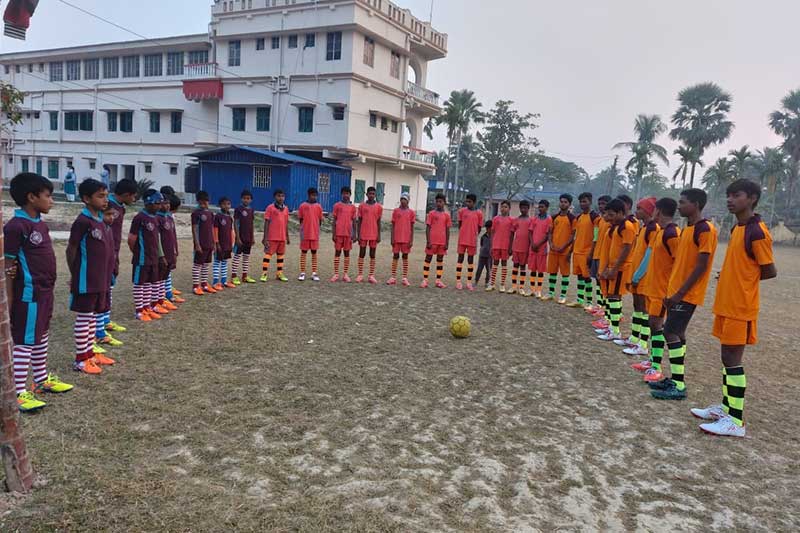
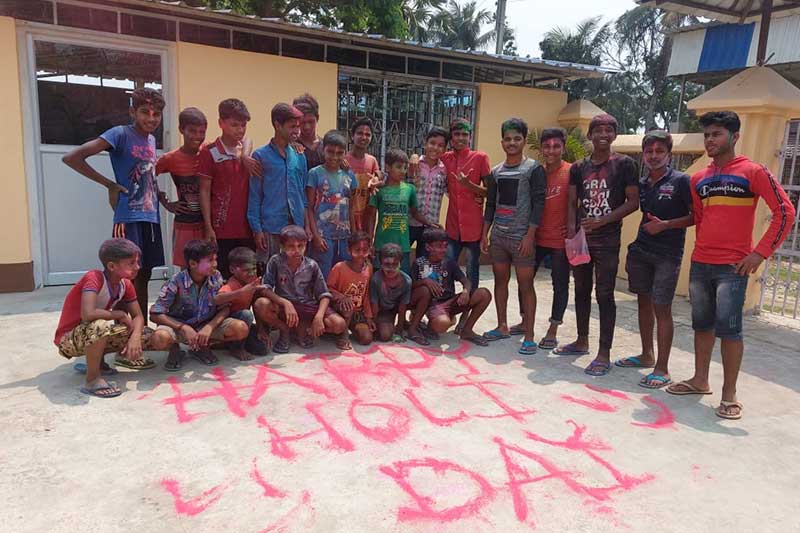
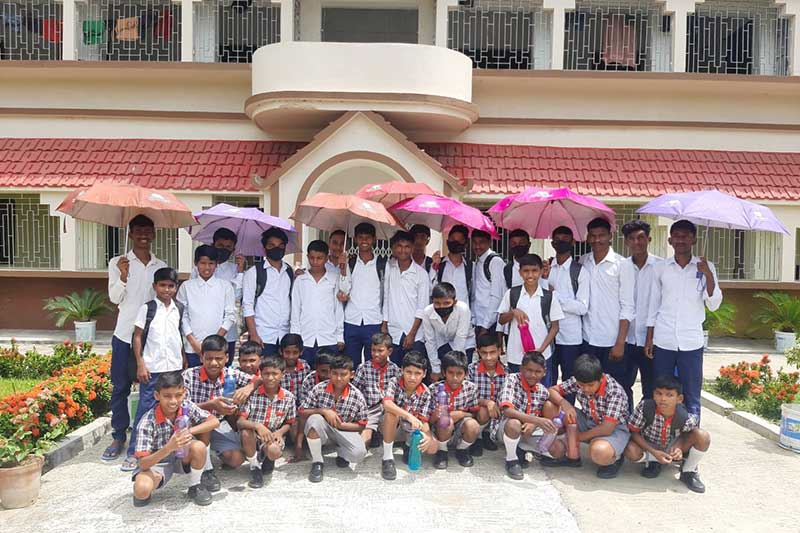
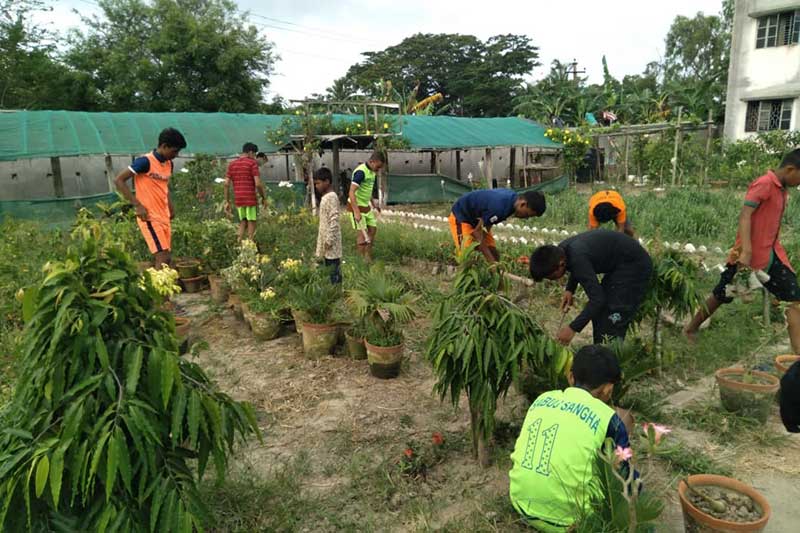
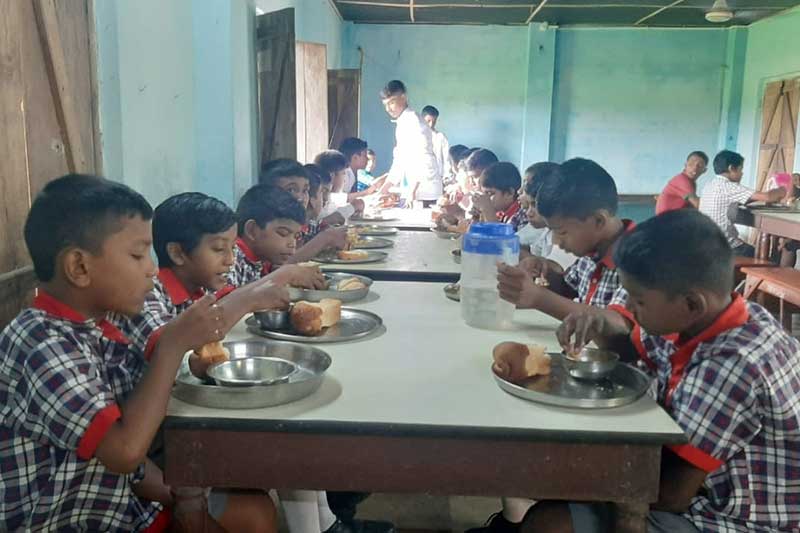
In an effort to promote Child Labour free society, Sabuj Sangha took a small step by starting a residential school for the underprivileged children at Nandakumarpur of South 24 Parganas, West Bengal. The school has accommodation strength of 34 boys. They are provided age-appropriate education and further mainstreamed into formal system. Food, learning material including IEC, school uniform, shoes, school bags and other materials are provided along with monthly health check up by a medical team of the organisation. All needs are taken care of by the authorities round the clock. Currently, 40 boys are already receiving services from the residential school.
Even the grave situation of the pandemic followed by the super-cyclone Amphan, the school continued to be operational. The school sends a strong message that education is the best way to combat child labour and creating empowerment among the poor families and thus, contributing to local and national development.
Nabadiganta:
180 Children are extended educational support through 2 centres run by Sabuj Sangha. They are also provided nutritional and medical check-up support.
During the pandemic, these centres acted as catalyst in bridging the gap in the learning. The centres are well equipped with trained teachers who are encouragingly using the new methods of imparting quality education rather than the traditional and monotonous ones. As a result, the children and the parents have highly been motivated to participate in the learning process.
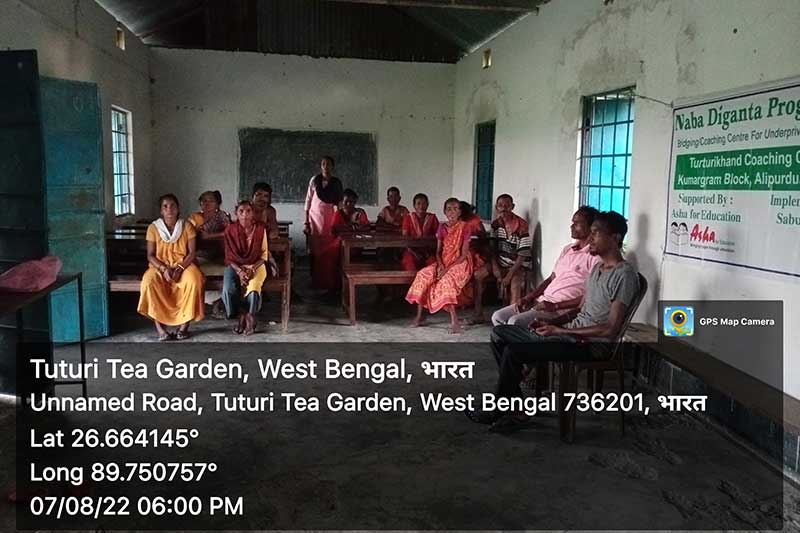
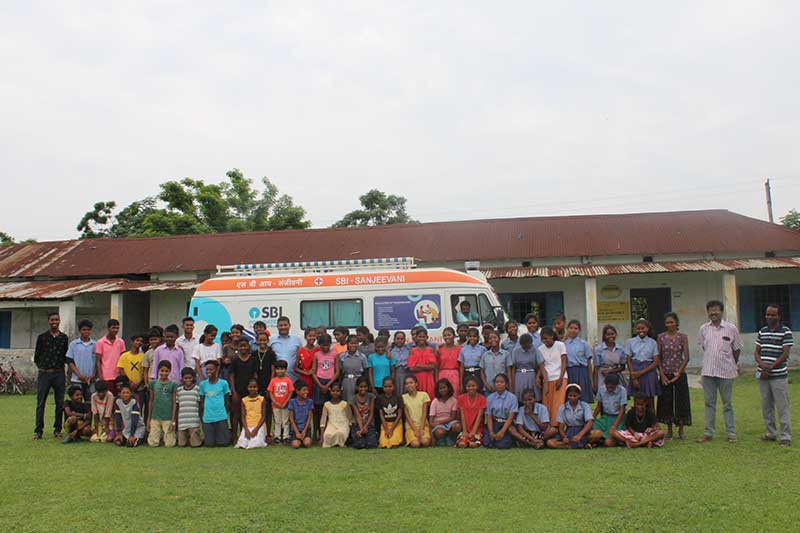
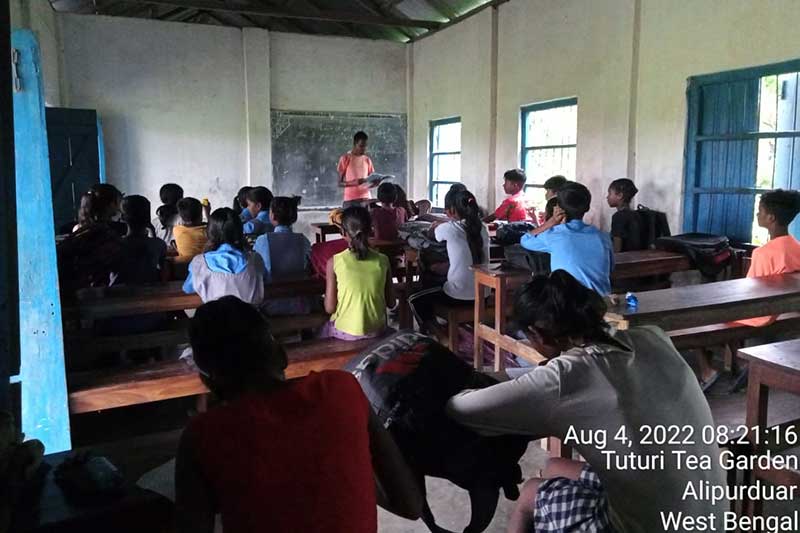
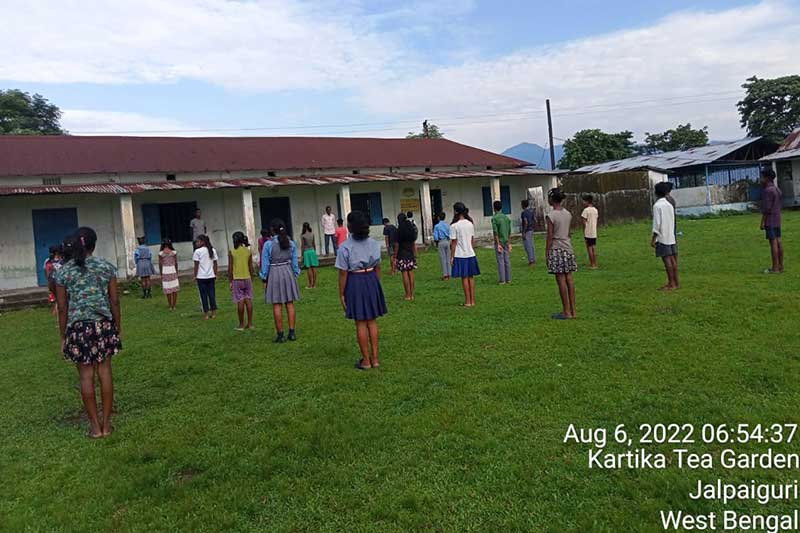
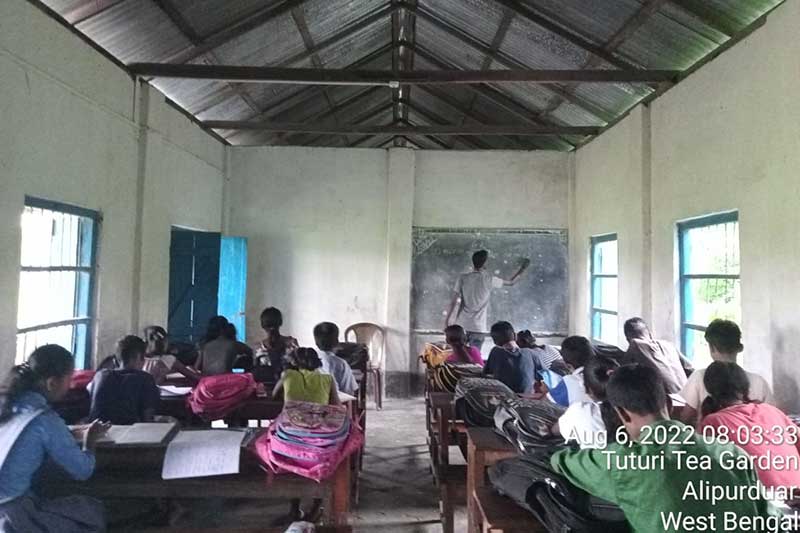
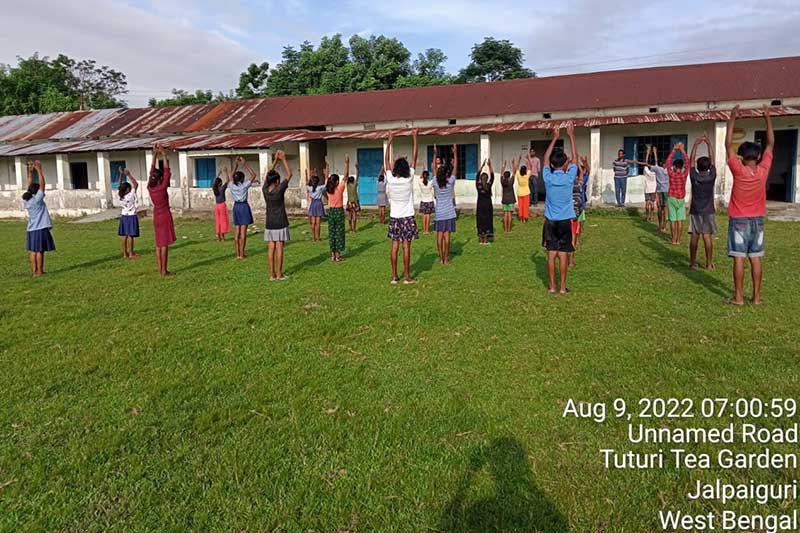
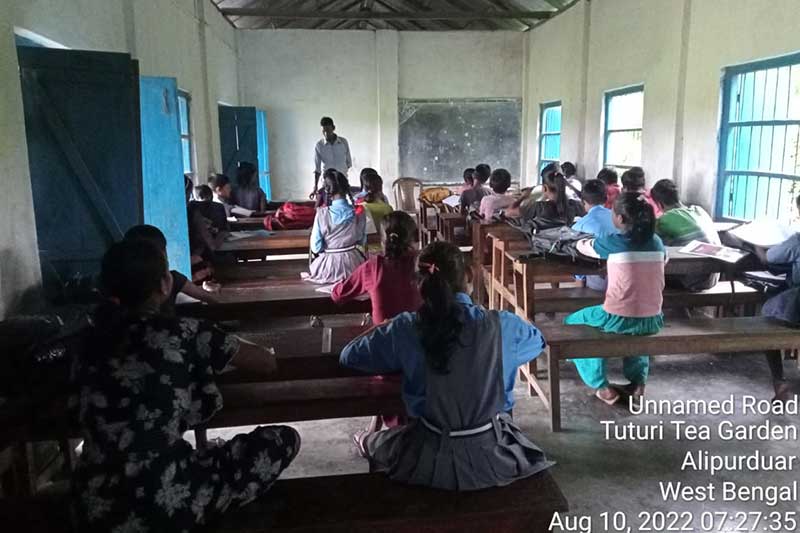
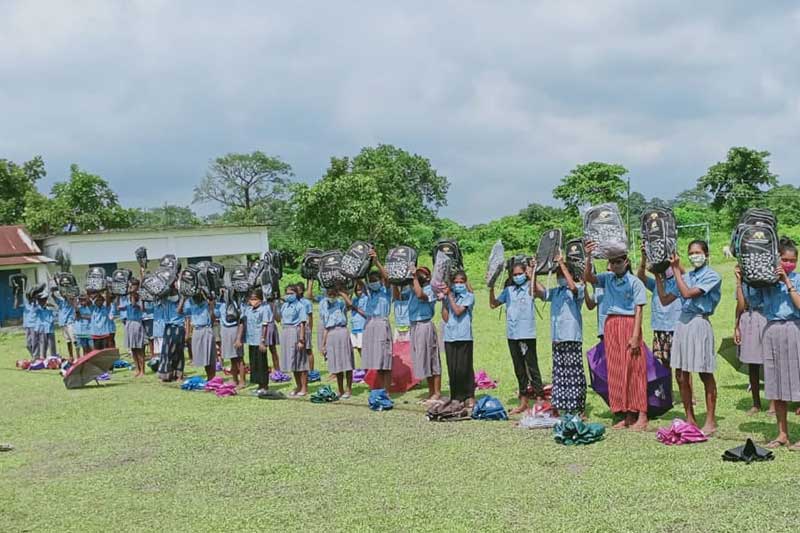
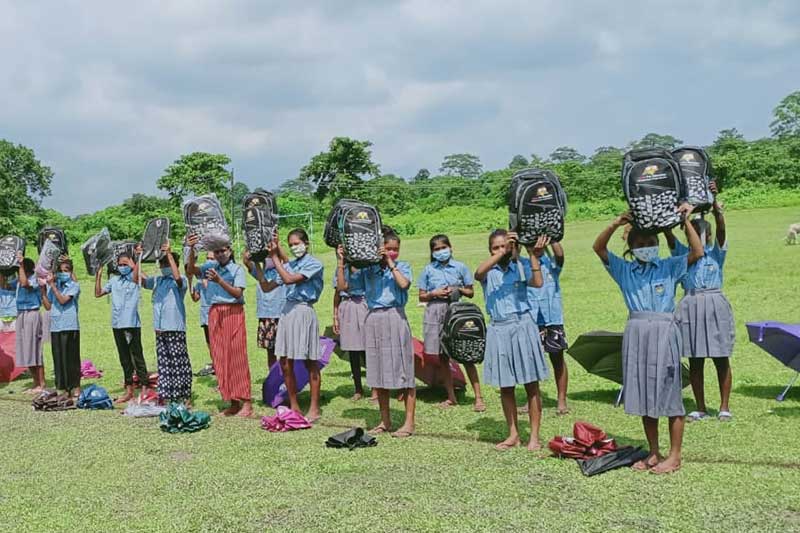
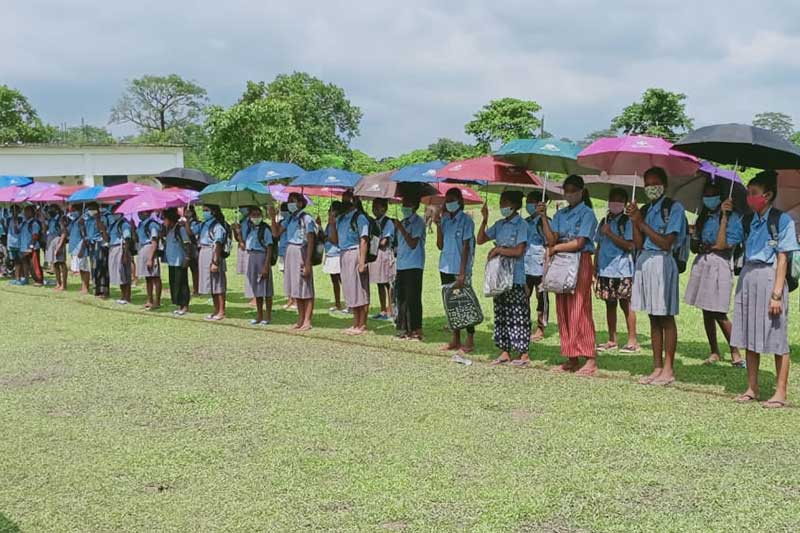
Rehabilitation of Deprived Children through Education:

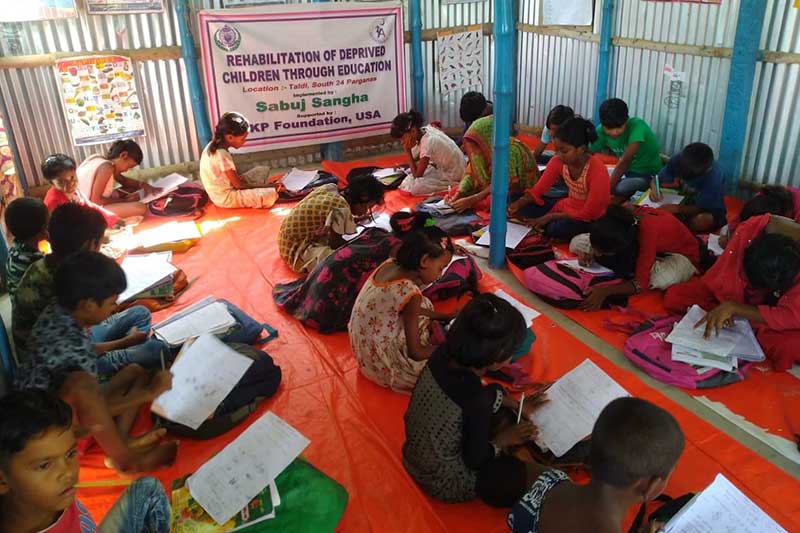
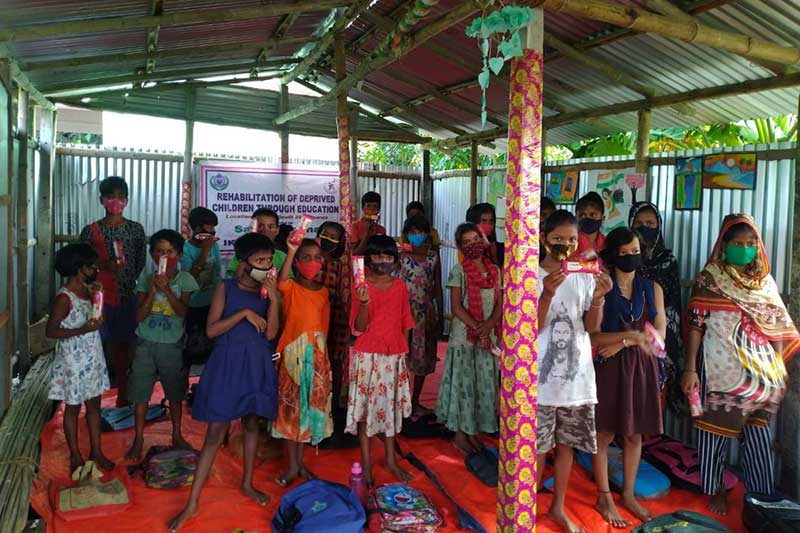
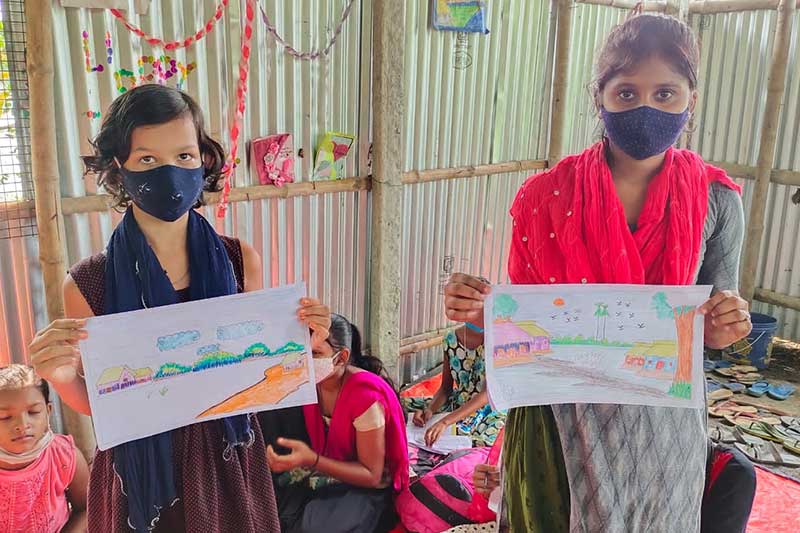
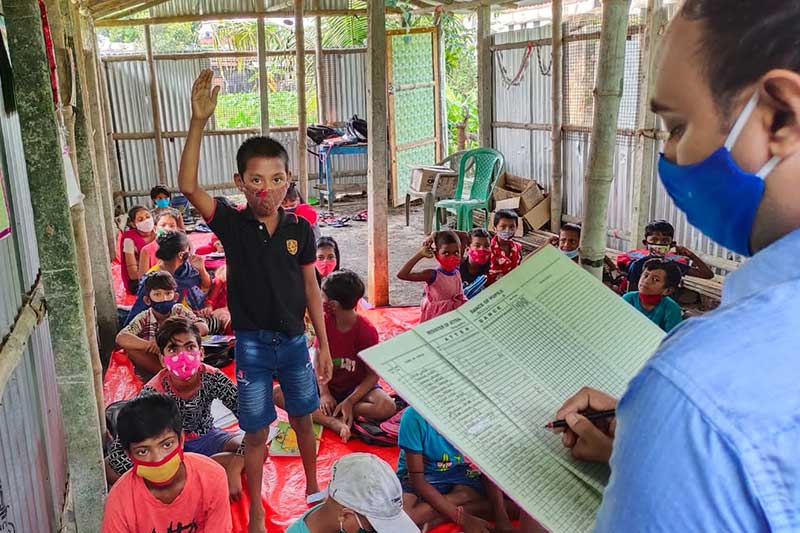
‘Sabuj Sangha’ is running an education support coaching centre for Rehabilitation of Deprived Children through Education (RDCE) namely ‘Sabuj Kunri’, Taldi at Taldi Station Area, at Sealdah South Division en-route to Canning, one of the Administrative Blocks of South 24 Parganas district, West Bengal India. This initiative is aimed to provide two types of support to 40 deprived children from the railways squatter colonies–
- Coaching support to those who are already going to formal schools and
- Mainstreaming support to those who have either been dropouts or never been to school.
These children are mostly first-generation learners, their parents being illiterate. They do not get ample support or guidance from their parents. Since the children are deprived of such facilities at home, they become reluctant towards studies easily.
During the pandemic, the teachers and staff reached out to the community to spread the messages of awareness about COVID-19, precautionary measures and extending support to children in their ongoing online learning classes. These centres have not only been effective in providing support for education to first generation learners, but also make regular follow up through home and school visits, meetings with mother core groups and centre development committee members to assess the progress of the child and involvement of parents periodically.
Childline:
Since 2002, Sabuj Sangha is one of the first Collaborative Organisation in the CHILDLINE network that responds to calls and provides immediate services to children according to their needs for rescue, shelter and medical support among others with support from Childline India Foundation (CIF) and Ministry of Women and Child Development, Govt. of India. As a network partner, it extends services in the 8 blocks in Baruipur & Alipur Sub Division, and indirectly reaching to 4 blocks in Canning Sub Division with help of a highly trained team that remains active round the clock 365 days for the causes.
Our organisation has been successful in providing intervention services for 457 children. 311 outreach programmes has been done dedicating 2152 hours, 1 orientation workshop for CHILDLINE partners, 7 open house programmes and 13 community awareness programmes have been conducted for the year 2020-21
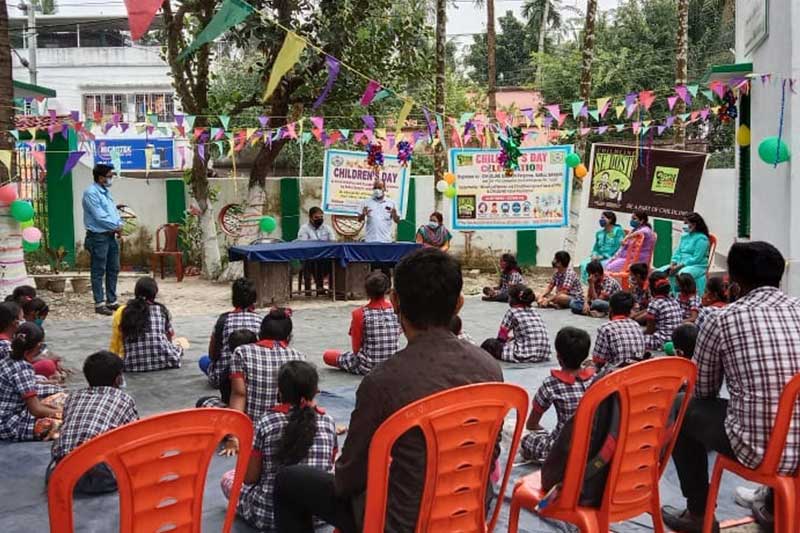
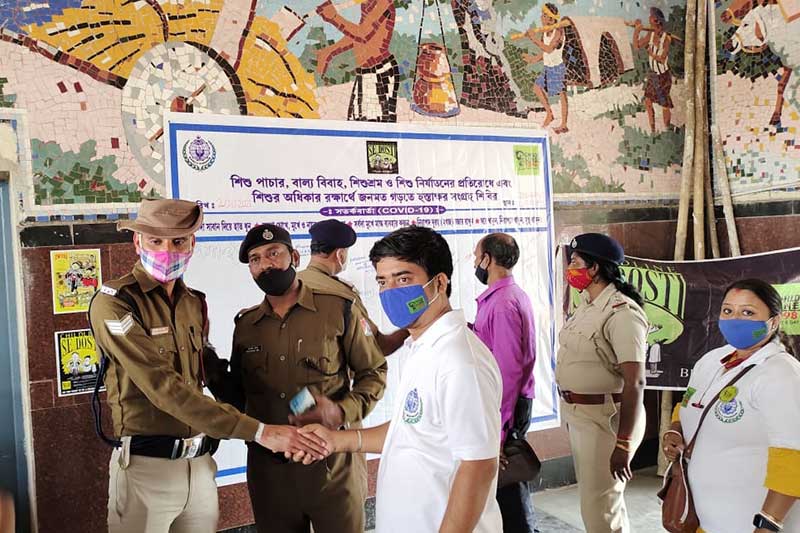
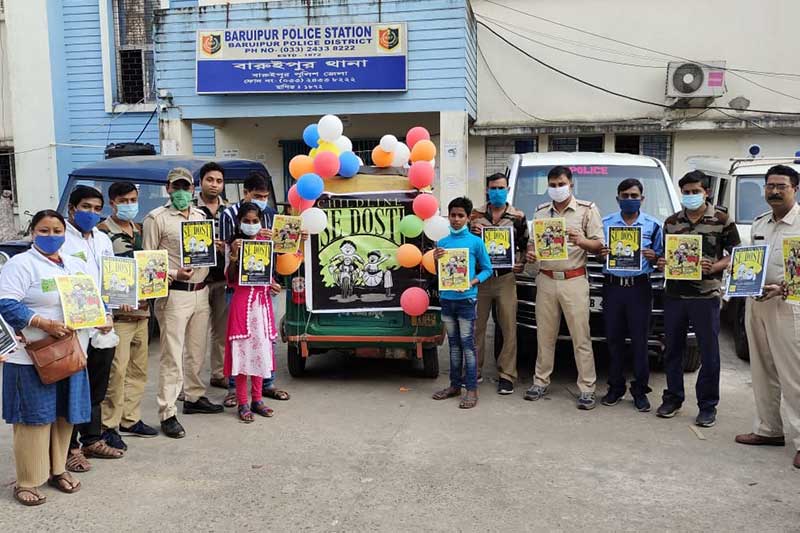
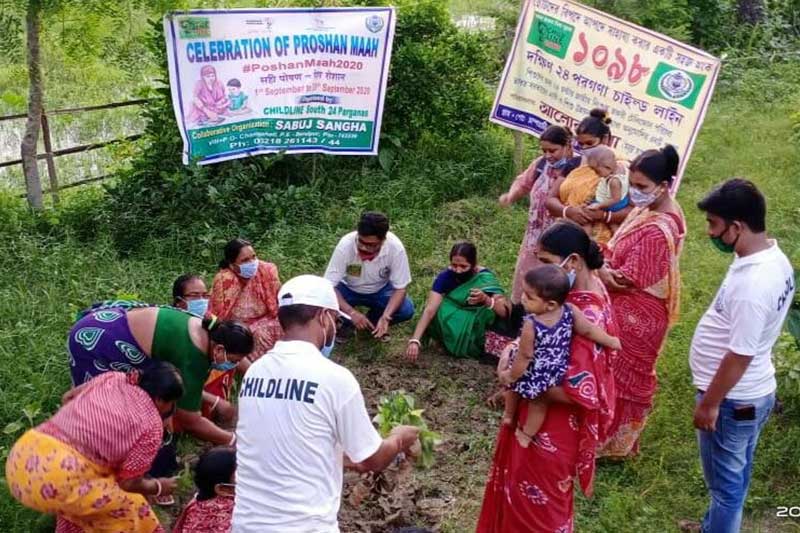
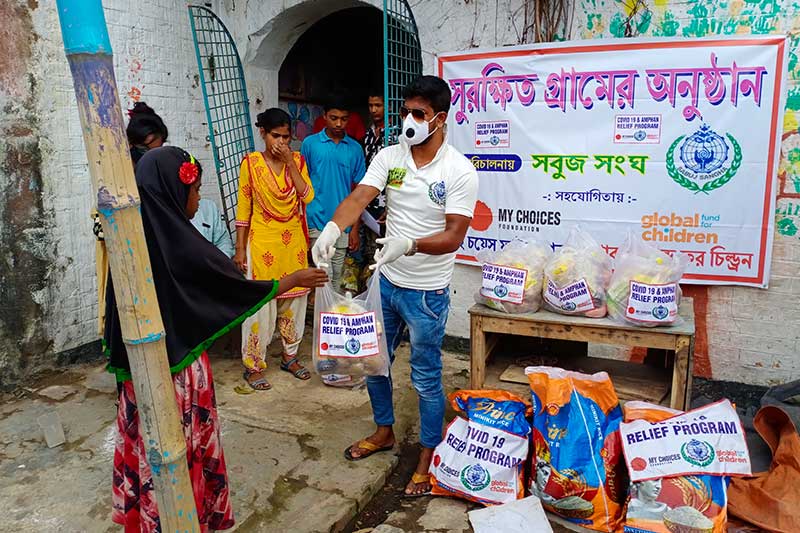
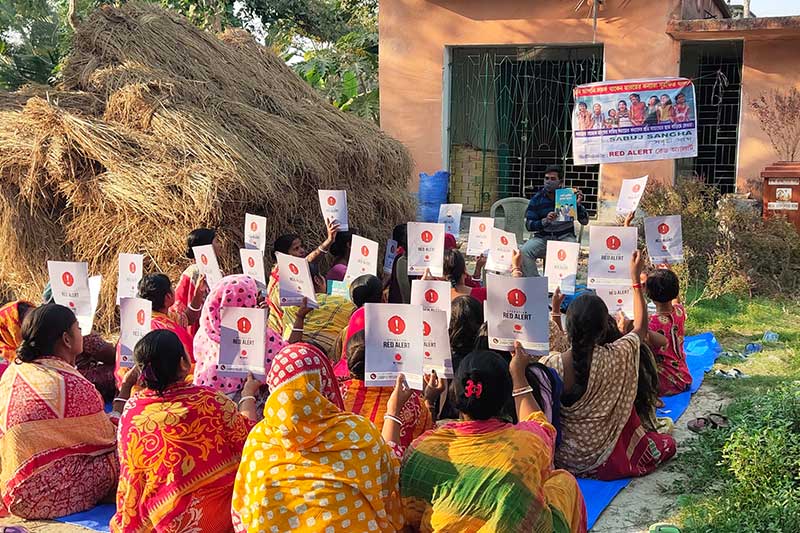
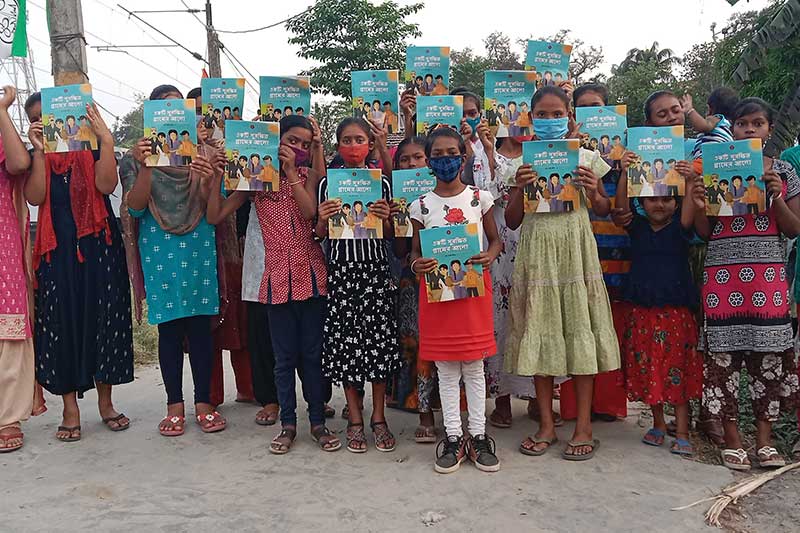
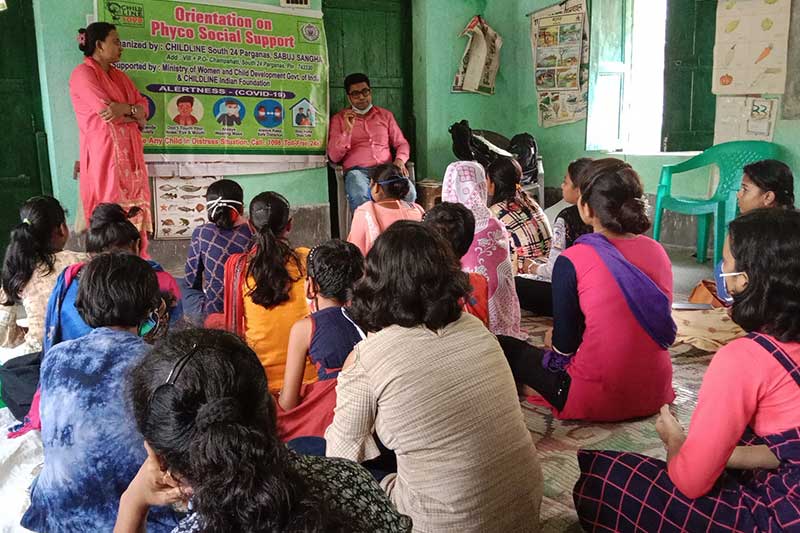
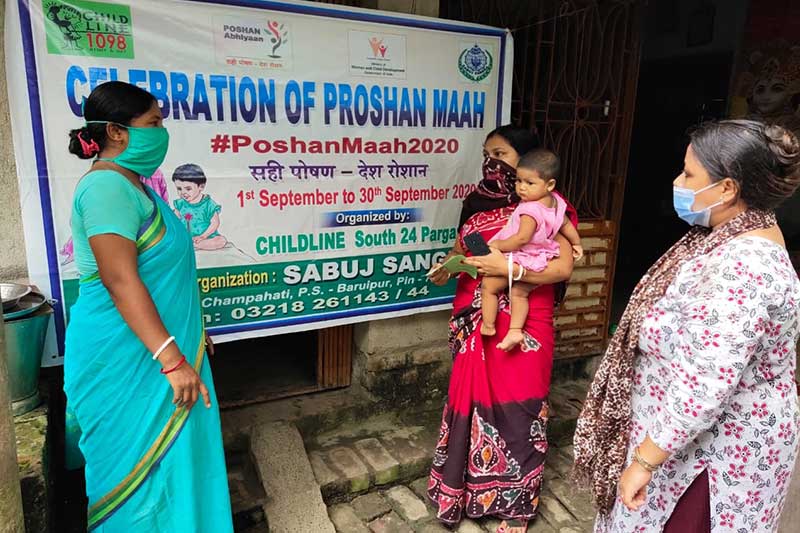
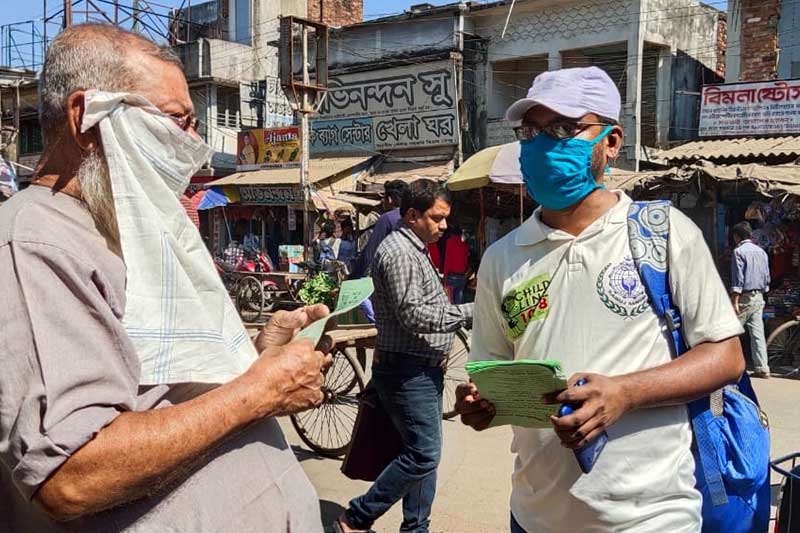
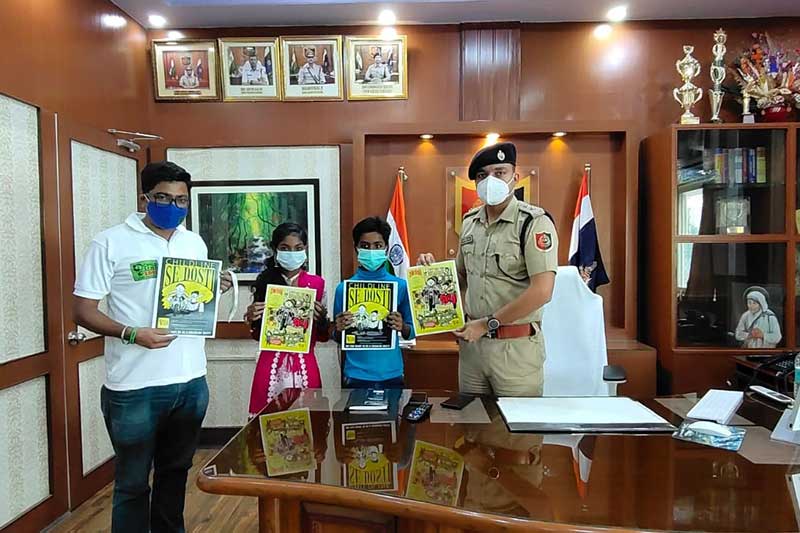
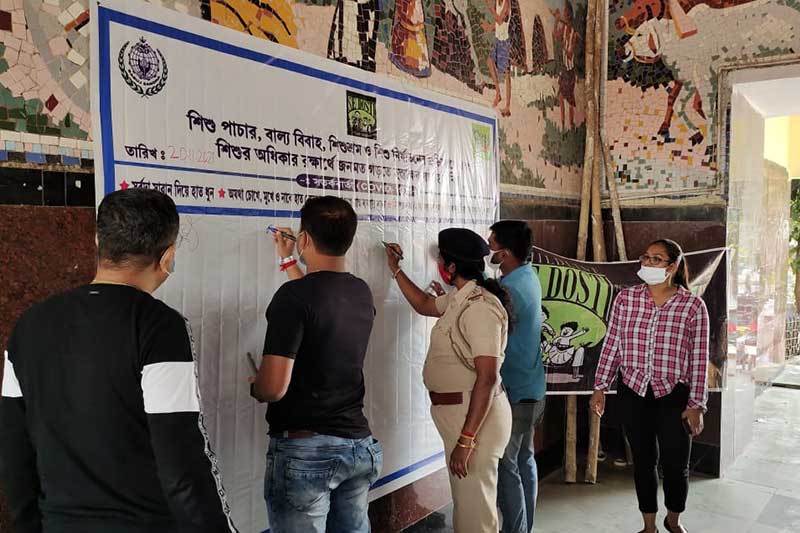
Even during the adverse pandemic situation, the CHILDLINE continued to remain operational. Due to the emergent health crisis, the CHILDLINE team members remained alert and participated in all the activities such as case intervention, outreach programmes, open house programme, community awareness programme, advocacy with allied systems, while maintaining COVID-19 protocols thoroughly. The team also supported by engaging in emergency relief material distribution during the lockdowns. Working continuously through the lockdown and the unlock phases, the team members made tremendous efforts in reaching the community, while managing their own health and mental health needs.
Additionally, with the aim of protecting the interests of the girl children and ensuring their utmost safety during the Covid-19 pandemic, the organization started safe village programme in the South 24 Parganas and Alipurduar districts, which are already considered the den for girl child trafficking. Through this initiative, the organisation made efforts to bring changes in the social outlook of discrimination by gender, created awareness about education and potential of girl children to become independent individuals in the society, prevented trafficking by making communities aware about traffickers and their motives. In the year 2020, a 2-day training sessions was conducted with adolescent girls, women and community members in the four blocks of Alipurduar district in Alipurduar I & II, Kumargram, and Birpara Madarihat. In addition to this, 21 meetings were conducted cumulatively, maintaining COVID-19 protocols and guidelines, with participation of over 400 people including children, parents of children, community members and Panchayat representatives in different areas of Baruipur Block under Baruipur Sub-Division of South 24 Parganas district.
